#a lot of the drama of this movie is centered on who 'earned' the money that miles has
Explore tagged Tumblr posts
Text
Not too be that guy but I'm pretty sure something cannot be trite if most people still don't seem to understand what it means
Even the phrase “eat the rich” feels trite. It neatly sums up a tote bag slogan era of anti-capitalism in culture, cutesy shorthand that’s now entirely representative of a watered down, inoffensive type of politics. You could argue that satire born out of this politics is predictable because its targets are predictable: we all know rich people suck and perhaps they don’t necessarily deserve nuance. But the beauty of good satire is in using a scalpel to eviscerate a subject, by having a distinct perspective and striking with precision. - Patrick Sproull, "Why all “eat the rich” satire looks the same now"
#trite requires understanding#u kinda gotta know wat something is for it be over done#i literally still see 'eat the rich' most often in a context where people have idea way out means#literally just conservatives talking about how liberals are literal cannibals#that or people talking about how everyone with a million dollars is 'the rich'#also this movie is 100% saying fuck rich people they're idiots#but it never once advocates that they shouldn't be rich#a lot of the drama of this movie is centered on who 'earned' the money that miles has#knives out literally called for the distribution of wealth#glass onion uhh doesn't#as far being in the same genre with the same over all message they're as far apart as you can get#because glass onion doesn't end with anyone but miles being screwed#literally everyone is better of without now that duke is dead and doesn't count#they will make more money without him because he was about to ruin them all#and Helen doesn't get the company there's no wealth that hey distributed from a rich person to anyone else#Andi didn't own alpha when she died and didn't leave a will to give it to Helen#everyone sharing to testify against miles must first admit to perjury to even start their statement#so ya that's all gonna get tossed out as testimony from unreliable witnesses#so it'll be Helens word against miles at the end of day and nothing changes#he's probably gonna go down for dukes murder and whoever is currently on the board of alpha will run the company for a few years#it's it s cathartic ending? yes#is it really within the bounds of specifically 'eat the rich'? nope#it's just a straight up and down commentary of the current state of who gets rich and why#that's about it
9K notes
·
View notes
Photo
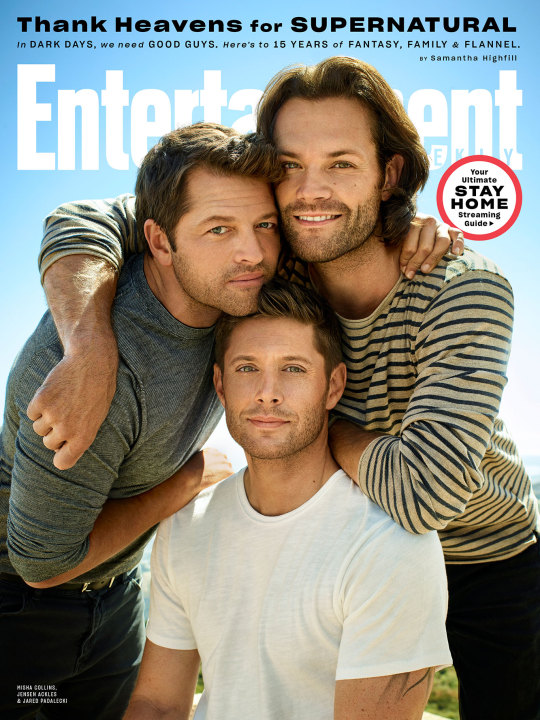
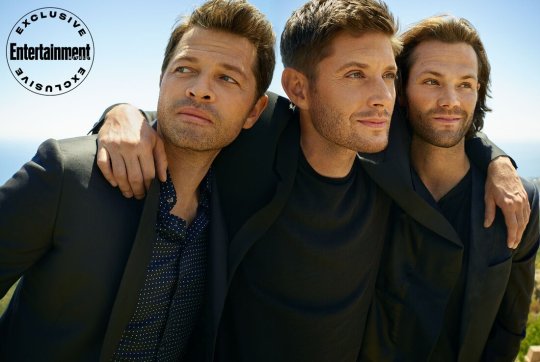
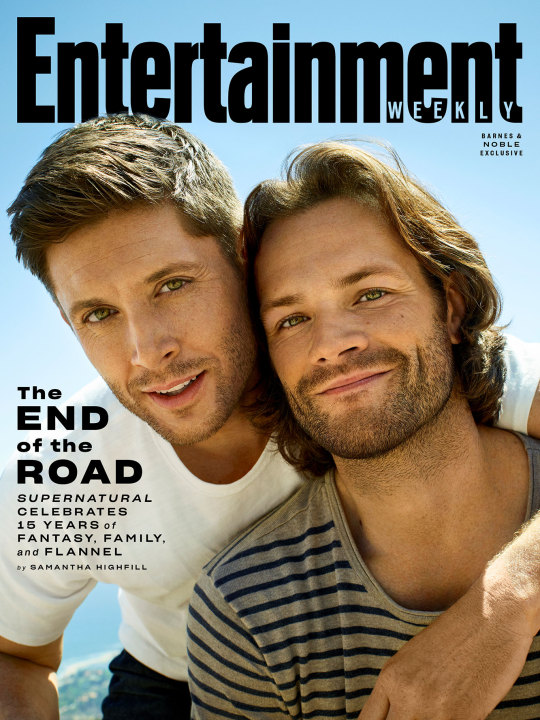
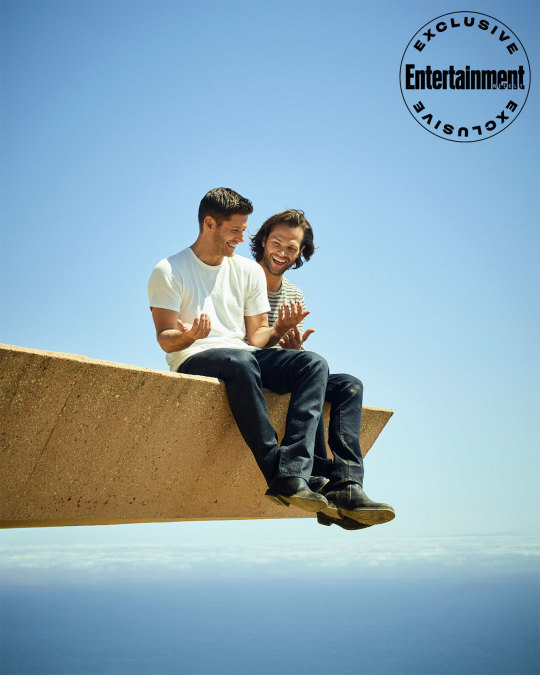
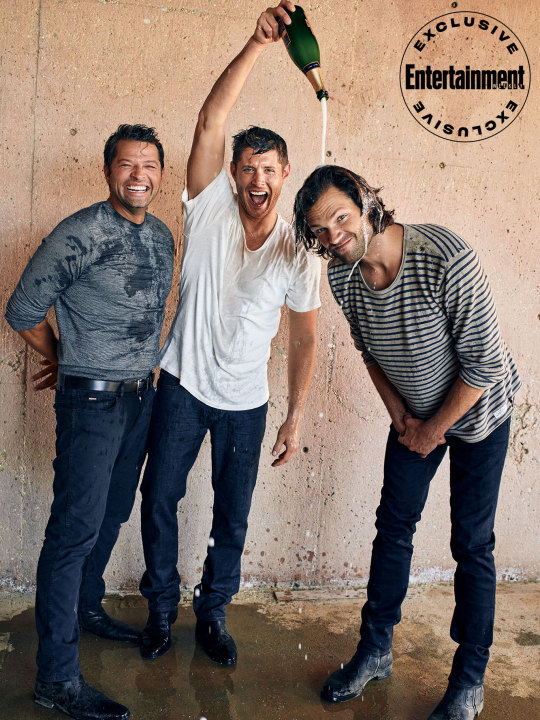
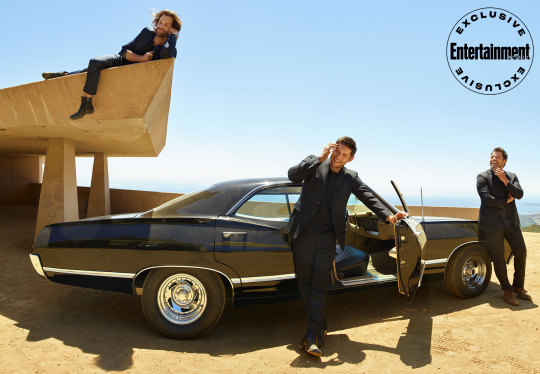

Supernatural stars reflect on the show's undying legacy
Jared Padalecki, Jensen Ackles, and Misha Collins discuss 15 years of fantasy, family, and flannel.
"We only get one shot at this." Sam and Dean Winchester are surrounded. The monster-hunting brothers are standing on the edge of a cliff. They look to Castiel, their brother in arms — or is it wings? — but even he can’t help. One move in the wrong direction could ruin everything. After years of fighting demons, going toe-to- toe with Satan himself, and saving the world multiple times, they once again find themselves in a position of having to perform under pressure. But this situation is unlike anything they’ve ever dealt with before. All eyes are on them as they have one shot…at getting the perfect picture.
It’s a dry, hot August day in Malibu — when people were still allowed to gather outside — as Supernatural stars Jensen Ackles, Jared Padalecki, and Misha Collins prepare for the last setup of their final Entertainment Weekly cover shoot. With a bottle of champagne in each of their hands, Ackles once again reminds them they get “one shot” to do this right. But if their characters can shoulder the weight of the world, surely these three can handle a photo. Read the whole story below
The champagne soaking is meant to be a celebration of 15 years, of making television history. Supernatural, the story of two brothers destined to save the world, is the longest-running genre show in the history of American broadcast television. (So old, the first three seasons shot on this thing called film.) What started as an underdog story, living its first few years on the verge of cancellation, has become an institution, a milestone to which other shows aspire. Supernatural not only survived the move from The WB to The CW after its first season — it’s now the final WB show left standing — but became the backbone of the now highly successful CW network. Over the years, the sci-fi series has aired on every weeknight, helping to launch shows including Arrow and The Vampire Diaries. The network moved it one final time, most recently, to Mondays, to help Roswell, New Mexico expand its audience. “Supernatural is a major link to many of the shows that we have successfully built to market,” The CW’s chairman and CEO Mark Pedowitz says. “Almost every one of our shows has had it as a lead-out or a lead-in.”
And to think, it all started as a promise to bring horror to television. After Supernatural creator Eric Kripke had finished working with Warner Bros. on 2003’s Tarzan series, he pitched the idea of a reporter who travels around hunting urban legends. As he puts it, it was a Kolchak: The Night Stalker rip-off. But when he realized the story would benefit from having brothers at its core, he started writing. “At the time, The Ring and The Grudge were huge hits in theaters,” Kripke remembers. “We said, ‘We’re going to take that experience and we’re going to put it on TV,’ and the initial goal was to be scary.” After Warner Bros. passed on his first, what he calls “uptight,” draft, Kripke had to reassess the kind of show he was creating. “I canceled all my Christmas plans and wrote that second draft in three weeks,” he says. “That was when the show got its sense of humor, because I was locked alone, over winter break, in my office. I couldn’t do anything fun, so I started entertaining myself.”
The show was still scary, but it was also funny and, over the years, would continue to evolve. Sure, you could say it’s a little bit X-Files — in its early days, the show often used the line “The X-Files meets Route 66” — and there were definite Star Wars influences (Sam and Dean were originally based on Luke Skywalker and Han Solo). But no combination of pop culture is going to perfectly describe Supernatural because the show has managed to do something remarkably rare in the age of peak TV, where audiences are so overwhelmed with content that an original idea seems foreign: It’s created a truly one-of- a-kind experience.
For starters, it’s a show about two flannel-wearing, beer-loving, blue-collar dudes from Kansas who for a good chunk of their lives traveled from cheap motel to cheap motel, paying for gas and greasy diner food with a mix of fake credit cards and money they earned scamming people at the pool table. “Almost all television is about rich people or, at the very least, middle-class people,” co-showrunner Andrew Dabb says. “The fact that we’ve been able to take this Midwestern blue-collar approach to this genre feels like we’re breaking the mold.”
But the mold-breaking didn’t stop there. Supernatural might’ve started out as a horror show with some snarky one-liners, but it evolved into some of the boldest, most experimental (and certainly strangest) stories on the small screen. “We’re a show of big swings,” co-showrunner Robert Singer says. “I used to say, with every idea, ‘This will be a home run or they’ll cancel us,’ but every year we wanted to do something really nuts." And when he says nuts, we’re not just talking about the episode with the talking teddy bear or the murderer targeting imaginary friends. Those are just some standard monsters of the week. We’re talking about the black-and-white episode shot like a classic Hollywood monster movie, or the episode that introduced Chuck (Rob Benedict), a prophet — who’d later reveal himself to be God — who was famous for writing a book series called Supernatural. That, of course, led to Sam and Dean attending a Supernatural fan convention as the show continued to redefine what it meant to inject a series with meta humor. And the swings never stopped. Season 13 featured a Scooby-Doo crossover as an animated Sam, Dean, and Castiel solved a case alongside the Mystery Inc. gang. And in season 14, after giving God a sister a few years prior, the show made the Big Man Himself its final villain. “I don’t think any idea, barring some production concerns, has been viewed as too crazy,” Dabb says. “Because we know that our fans are smart and that they’ll follow these guys anywhere.”
So long as each episode features Sam and Dean — and the occasional heartfelt talk on the hood of the Impala — the show can do just about anything, which is another reason Kripke had to rewrite his first draft of the pilot. Originally, Dean was the only brother who knew about monsters growing up, bringing Sam up to speed later in life. It wasn’t until Kripke figured out that they needed to be in this together that the series snapped into place. Because at the end of it all, they’re two brothers bonded by the loss of their mother and a life spent on the road with an absentee father. (It just so happens that their mother was killed by a demon and their father hunted them.) The familial dynamic — the irrational codependency, as the angel Zachariah (Kurt Fuller) once called it — is the most important part of the show. “The first inkling I had that we had something special was shooting the pilot,” Kripke says. “It was the scene on the bridge when Sam and Dean talk about their mother. It was the first time that you really saw their chemistry and their connection as brothers on full display. Because I’ve always said this show begins and ends with whether you believe that sibling relationship.” But Sam and Dean weren’t just the center of the show. For many years, they were the show.
Supernatural has never been an ensemble drama. For the first 82 hours of the series, Ackles and Padalecki were the only long-running series regulars — Katie Cassidy and Lauren Cohan briefly joined for season 3, appearing in 12 episodes combined. But Sam and Dean weren’t just in every episode; they anchored every episode. (They skipped table reads because there would’ve been only two actors there.) “I had many moments of not only questioning, ‘Can I keep this up?’ but an answer of ‘I cannot keep this up,’ ” Padalecki, 37, who’s been vocal about his struggle in the early seasons, says. “I borrowed strength from Jensen.” But even Ackles, 42, admits it was a tough job. “The 23-episode seasons were nine and a half months of filming,” he adds. “It was a lot of work, but I always came back to: I still enjoy it, I still like telling the story, I still like these characters and the people I work with.”
Not only did the guys stick around, they built a reputation of having created one of the warmest sets in the business, with a number of crew members staying with the production all 15 seasons. It all dates back to a talk Kripke had with his stars during the filming of the series’ second episode. “I said, ‘The show is about your two characters, and with that comes this responsibility,’ ” Kripke says. Padalecki remembers the exact setting of what he calls their “Good Will Hunting moment,” a bench in Stanley Park in Vancouver, where they film. It was a chat both actors took to heart. “We’d both been on other sets,” Ackles says. “We knew we wanted to enjoy it, to have fun with our crew; we wanted them to like us and us to like them and to have fun doing what we do.” It’s an attitude Pedowitz hopes bleeds into other CW shows, an attitude that launched an annual tradition where the CW chairman/CEO takes his new casts out to dinner with the Supernatural guys, a chance for the vets to share advice. “It’s always the most flattering situation,” Padalecki says, recalling a moment he had a few years back with the late Luke Perry, who was a part of the Riverdale cast. “Luke was sitting next to me and he was like, ‘What y’all have done and what we hear about you guys, it’s really cool to be associated with y’all in some way, shape, or form,’” he recalls. “And I’m sitting there pinching myself.”
It’s a behind-the-scenes legacy that’s perhaps just as impressive, if not more so, than the onscreen legacy. Collins, 45, who started as a guest star and the show’s first angel in season 4, has become the show’s third-longest-running series regular, and he still remembers walking onto set his first day. “When you’re coming onto a show as a guest star, it can be a little bit nerve-racking,” Collins says. “Coming to this set, it was an immediately different vibe. Think- ing about working on other shows in the future, that’s something that I aspire to bring with me.”
A similar reputation extends to the fans as well. Not only is the #SPNFamily one of the most dedicated fandoms out there, it’s also known to be a pretty nice one. (Not many fandoms can say they’ve helped launch a crisis support network for their fellow fans.) But their dedication isn’t just about seeing what crazy twist God throws at Team Free Will next. Thanks to fan conventions and social media, the viewers are just as invested in the lives of the actors. Supernatural’s not just about the words on the page, it’s about the actors saying them. “When you’re dealing with the public taste, there’s an alchemy of great writing, a great idea, and the close-up that’s required,” Peter Roth, chairman of Warner Bros. Television Group, says. “You need stars who you want in your living room.” And you need stars who want to be in your living room, and who, even after 15 years, care so deeply that they get emotional while taking photos in Malibu.
"It's going to be a long eight months," Ackles declares. Standing on that same ledge, an hour before the champagne shot, Ackles, Padalecki, and Collins walk away from a group hug after unexpectedly starting to tear up. It might be the setting — looking out over the ocean — or the occasion: their last-ever photo shoot. Or maybe it’s the fact that they’re almost a month into filming their final season.
It had been a question posed to the stars for years: How long will this show continue? How long can it continue? “Even my mom and dad were like, ‘When are you going to be done with this?’” Ackles says with a laugh. It was a decision the network and studio had ultimately put into the actors’ hands, and it was a conversation they’d been having for a while. Back in 2016, Padalecki told EW, “If we don’t make it to [episode] 300, I think Ackles and I will both be truly bummed.” But in season 14, they hit 300…and then kept going. While filming episode 307, they announced the upcoming 15th season would be the end, which will bring them to a total of 327 episodes when all is said and done. “[Jared] and I were always married to the fact that we never wanted to go out with a diet version of what we had,” Ackles says. “We wanted to have enough gas left in the tank to get us racing across the finish line. We didn’t want to limp across.” Padalecki remembers the moment it hit him — not the decision to end it, but rather the opposite. “We had that moment where he and I both realized that we didn’t want it to end,” he says. “It finally got to a point, ironically, where it was like, ‘I never want to leave this. I could do this until the day I die, and then if I get the choice when I’m dead, I’ll re-up!’ But you never want to be the last person at a party. We just knew. That’s not to say there haven’t been vacillations, but we all trust the decision that was made.”
Starting in July 2019, the cast and crew returned to Vancouver to begin filming the final season, but in March 2020, with two episodes left to go, they were sent home. For years, fans had wondered what, if anything, could stop the Winchesters, and now it seems we have the answer: a global pandemic. As sets closed amid social-distancing measures due to the spread of COVID-19, it didn’t take long for fans to start connecting the dots, sharing relevant GIFs from episodes that featured viruses, most notably Chuck telling Dean to hoard toilet paper “like it’s made of gold” before the end of the world in season 5’s “The End.” (Did we mention that Supernatural is also kind of psychic? In a season 6 episode, Dean calls Sam “Walker, Texas Ranger,” which just so happens to be the role Padalecki has lined up after this ends.)
When production paused, it all felt a little like we were living in an episode of the show, just waiting for Sam and Dean to drive up in Baby, open those creaky doors, and save us. They might not be able to do quite that, but the thing with the Winchesters is that they never stay down for long. When Supernatural is able to safely resume production, it will. And though there are only two episodes left to film, fans will enjoy a total of seven unseen hours, including the return of Charlie (Felicia Day) and a mystery woman who visits the bunker and, for some reason, gives Sam and Dean all the holidays they never got to celebrate. “She makes Christmas for them and Thanksgiving, birthday parties, and all that. It’s a very good episode,” Singer says, adding, “I don’t know when it’s going to air.”
That’s the thing—no one knows, not even the guys who took out Yellow Eyes, stopped Leviathans, defeated Death himself, and are supposedly destined to be the messengers of God’s destruction. But Sam and Dean do know the value of a good plan B. “Obviously it’s a horribly unfortunate situation we’re in, but the silver lining is that it gives us an opportunity to recharge,” Ackles says. “We had just finished episode 18, we shot one day of episode 19, and I was reading these two monster scripts thinking, ‘It’s like we’re at the end of a marathon and they want us to sprint for the last two miles.’ I feel like this almost gives us an opportunity to refocus and go into the last two episodes and hit them with everything we got.” Because when they do return to set, shave their quarantine beards, and step back into Sam and Dean’s shoes for the last time, they’ll have one shot at ending this thing…and they’re determined not to miss.
Photos: Peggy Sirota for EW
https://ew.com/tv/supernatural-stars-cover-ew-to-reflect-on-the-shows-undying-legacy/
#supernatural#jensen ackles#jared padalecki#misha collins#last season#season 15#entertainment weekly#cover story#dean winchester#sam winchester#castiel#full post#SPN#spn family#new photo#new photos
785 notes
·
View notes
Text
The Losers: Chris Evans, Idris Elba and Zoe Saldana’s Forgotten Superhero Movie
https://ift.tt/3CsNhNU
Even The Losers get lucky sometimes. Before the DCEU was formed to compete against the ever-expanding, cash cow that is the Marvel Cinematic Universe, the approach at Warner Bros. was far looser. With the booming business of comic book adaptations in full swing, the studio was throwing money at several eclectic comic book titles like Watchmen and Jonah Hex, trying to stay competitive and seemingly more adult than their rivals. Hence before leaving to create his own superhero project, Hancock, wrier-director Peter Berg started penning an adaptation of DC/Vertigo’s The Losers, bringing in French director Sylvain White to helm the picture.
Produced by Joel Silver, The Losers centered on a team of elite, black-ops Special Forces operatives betrayed by their handler. Director White connected with the material immediately.
“What appealed to me about The Losers was that it wasn’t the typical superhero-with-superpowers thing,” White told MTV. “It was based on real characters—realistic characters—and based in reality, like a lot of the European graphic novels that I had grown up reading.” The director worked with creators Jock and Andy Diggle to refine the script and lend their expertise with design to give the film a distinct visual palette that changes with new locations.
Frequent Silver collaborator Idris Elba was cast as Captain William Roque, with the cast being rounded out by Jeffrey Dean Morgan, coming off his turn as The Comedian in the studio’s adaptation of Watchmen, Zoe Saldana, fresh off of starring in the highest-grossing film of all-time, Avatar, Chris Evans, still mainly known for playing the Human Torch in Fox’s early Fantastic Four films, and rising actor Columbus Short. While current audiences would go on to become intimately familiar with most of this cast, their names didn’t generate enough buzz in 2010 to get folks into the theater. The Losers only made about $30 million on a $25 million budget.
Of course a tepid response at the box office does not mean that a movie is destined for obscurity. Just recently hitting Netflix and ready to capitalize off its now A-list cast, The Losers is currently the most popular film on the streaming service. Besides the even greater interest in comic book properties, the cast of The Losers have gone on to such success that they revitalized interest in one of DC’s almost-forgotten adaptations. Let’s look at where the cast of The Losers have been since the film’s release in 2010 to explain the sudden spike in love.
Idris Elba
While Elba, a star of British television via Luther, had already made an impression with American audiences by 2010 thanks to 28 Weeks Later, Guy Ritchie’s RocknRolla, and a guest stint on The Office, Elba’s star would rise considerably after his appearance in The Losers. In 2011, Elba would join the MCU as Heimdall in Thor, who’s role in the Thor films would expand as the franchise progressed. Elba would also pop up in prominent roles in blockbusters like Prometheus, Pacific Rim, The Jungle Book, and Star Trek Beyond. Away from blockbusters though he really broke out with a SAG-winning performance in Beasts of No Nations, and starring in fare like Aaron Sorkin’s Molly’s Game.
More recently, Elba stole scenes away from Jason Statham and Dwayne “The Rock” Johnson as the villain in Fast & Furious: Hobbs and Shaw. Finally, things have come a bit full circle for Elba, as he’s set to appear in another DC adaptation over 10 years after The Losers, portraying Bloodsport in James Gunn’s The Suicide Squad.
Jeffrey Dean Morgan
In 2010, Jeffrey Dean Morgan was probably most well-known for his roles on television in series like Supernatural and Grey’s Anatomy. That all changed after Morgan was cast in an adaptation of the “unfilmable” graphic novel Watchmen as The Comedian. While his time onscreen in the Alan Moore and Dave Gibbons adaptation was minimal, bringing such an iconic comic book character to life earned Morgan a deeper cachet with the Comic-Con crowd. Morgan would work steadily in films like The Possession and the Red Dawn remake, but he arguably made a bigger impact on television portraying yet another iconic comic book character on AMC’s The Walking Dead, Negan.
Read more
Movies
Avatar Sequels Recruit Vin Diesel for Mystery Role
By Kirsten Howard
Movies
How The Suicide Squad is Different from Guardians of the Galaxy
By Mike Cecchini
Morgan received critical acclaim for his portrayal of the villainous Negan upon his debut, earning the Critics’ Choice Television Award for Best Guest Performer in a Drama Series, MTV Movie and TV Award for Best Villain, and Saturn Award for Best Guest Starring Role on Television. He’s been going steady as Negan since while doing other occasional comic-con friendly projects like Rampage.
Zoe Saldana
Zoe Saldana was on top of the world in 2010, and in the time since, she’s only become more successful. After appearing in the buzzy Star Trek reboot in 2009 and a little film called Avatar, the former Center Stage star would go on to headline her own action film Colombiana. However, that would seem like small potatoes compared to what would come in 2014. Saldana was cast as Gamora in Guardians of the Galaxy, Marvel’s riskiest adaptation to date. Would audiences get onboard with an off-beat space opera featuring C-tier Marvel characters? Turns out, yes. Gamora not only became the heart of the Guardians, but the character would feature prominently in the grand Phase 3 finales Avengers: Infinity War and Avengers: Endgame.
In the shadow of that, Saldana has starred in more Star Trek sequels, an ill-advised TV remake of Rosemary’s Baby, and as Nina Simone in in Nina, a performance did come under fire for due to the lightness of her skin. Still, Saldana now has leading roles in the two highest grossing films of all-time, and is still expected to star in Guardians and Avatar sequels. Not too shabby.
Chris Evans
Speaking of the MCU, Chris Evans wasn’t floundering in 2010, but he did seem to be stuck in a bit of a rut, typecast as handsome smart alecks prior to The Losers. In fact, his big mainstream break is probably the less than classic spoof comedy, Not Another Teen Movie (2001); afterward he played Johnny Storm in Tim Story’s lukewarm Fantastic Four movies in the mid-2000s; in fact, arguably his most amusing role up to 2010 was when he appeared as a douchebag movie star in Edgar Wright’s genre-bending comedy, Scott Pilgrim vs. the World (2010).
Read more
Movies
Knives Out: When Murder Makes You a Better Person
By Natalie Zutter
Movies
$400 Million Knives Out 2 Deal Gives Netflix Major Movie Franchise
By David Crow
That said, The Losers found him playing against type as an awkward tech expert. Perhaps his chance to show a different side of himself led to his life-changing role as Steve Rogers in the MCU’s Captain America. Anchoring the Avengers franchise for eight years, Chris Evans rose to the top of the A-list, and used that newfound celebrity to help get passion projects like Bong Joon-ho’s Snowpiercer and Rian Johnson’s Knives Out made. Evans is one of the most popular celebrities on social media right now and looks to continue his profitable relationship with Disney by voicing Buzz Lightyear in the animated origin film, Lightyear.
Columbus Short
Perhaps the only member of the cast not to launch into the stratosphere after The Losers, Columbus Short has had a few issues that have prevented his rise. Short booked a role on the popular ABC series Scandal, but personal issues derailed his involvement in the show. In 2014, as part of a no-jail plea agreement, Short pled guilty to misdemeanor domestic violence and performed 30 hours of community service. Short also avoided jail by pleading no contest to a felony assault charge after throwing “a running punch” at his in-law during a family gathering at a bar.
In an interview with Access Hollywood Live, Short shared that substance abuse due to the stress of family issues and personal loss had led to his departure from Scandal. However, Short has appeared to move past his personal struggles and can next been seen portraying Martin Luther King Jr. in Remember Me: The Mahalia Jackson Storyand returning as Quadir Richards in True to the Game 3.
cnx.cmd.push(function() { cnx({ playerId: "106e33c0-3911-473c-b599-b1426db57530", }).render("0270c398a82f44f49c23c16122516796"); });
The post The Losers: Chris Evans, Idris Elba and Zoe Saldana’s Forgotten Superhero Movie appeared first on Den of Geek.
from Den of Geek https://ift.tt/3lwQGVL
1 note
·
View note
Text
Matilda

The movie is based on a children’s book by Roald Dahl, which centers on Matilda Wormwood, an exceptional child with extraordinary telekinetic prowess. Matilda likely raised herself as she was unexpectedly born with superb intelligence and independence, which is far different from her disreputable, mistreating, and uninvolved parents, Mr. Harry, and Zinnia Wormwood. With her astonishing skill and personality, she was able to oust the autocrat principal, Agatha Trunchbull. On the other hand, she helped her teacher, Jennifer Honey to regain her possessions, as well.

Though it is in a fantasy comedy-drama genre, it presented real-life circumstances such as every child is special and unique. Additionally, our lives depend on us, we always have a choice, we can decide what we want to be in the future, no matter how harsh the environment we belonged to.
As evidently seen in the movie, although Matilda was raised by shabby and horrible parents, she grew up divergent from them. She never let her parents’ crooked beliefs inculcate with her values, personality, and perspective. Instead, she applied these lessons to widen her point of view and use it as a motivation for her to be distinct from them.

The movie stresses that it is okay to be different as much as how Matilda found herself being a bookworm and independent, unlike her parents, who watch nonsense television shows along with her bully brother. She proves that through the help of the books, one can discover happiness and escape difficulties in simple things.
Aside from that, one of the messages of the story is that a small can be terrible. There will be a time in our lives that we will meet people who are arrogant and close-minded, afraid of being corrected and criticized because they perceive those people as smart-aleck and that no one should mess up with them. However, there are people like Matilda who are not afraid to speak and act to what is right. Even if dominant people think that their opinion is correct while the others are wrong, it does not necessarily mean that they are entitled to invalidate other people’s feelings, rights, and power just because they are smaller or younger.

Parents are also leaders; they manage, and they are responsible for everything that happens inside the house. They are the ones who should influence positively among their children. But, in the movie, Mr. Harry and Ms. Zinnia Wormwood are the perfect opposite of a leader. They focus on themselves, money, and nonsense television shows. Like an autocrat leader and authoritarian parent, Mr. Wormwood forces everyone to do what he insisted on, without considering the family member’s opinions or preferences. Besides, instead of being a role model, he teaches his children to be cheaters and to work illegally to earn a lot of money. Matilda’s parents are crook and irrational, they only want to be respected, yet they never respected anyone. They even belittle education because as for them, anyone can be rich even without entering school.
Apart from her family, there are other characters that shaped the personality and point of view of Matilda into various things.

Agatha Trunchbull, the principal of Crunchem Hall elementary school where Matilda attends. She, she makes sure that no one would try to disagree with her, meddle with her decisions, as well as way how she runs the school with her sadistic and absurd rules because she believes that no one is smarter than her. As an autocratic leader, she “use the rod, beat the child” as her motto that means to use inhumane and unjust corporal punishments, more likely to terrify the children rather than to discipline them. This creates a negative school culture, where the safety and welfare of students are not ensured, freedom to express and to speak, of students as well as teachers are deprived. She is described as an oppressive and firm woman. But trying to dig deeper to where her toughness came from, it was mentioned that she used to participate in the Olympics sports such as shot put, javelin, and hammer throw. Knowing that these sports demand not only a strong physique but also a strong mind and discipline, perhaps the kind of training environment she grew up, influence her to be a ruthless woman.

Aside from Matilda another notable character is Miss Jennifer Honey, Matilda’s teacher. As a future educator, I would want to be like her. A remarkable teacher, second mother, and a friend who touches the heart and soul of every student. Miss Honey is the complete contrary of Agatha; she recognizes the diversity of her students, tries to understand and appreciate their uniqueness. Since she knows how the principal treats the students, she works extra hard to educate the students, acknowledges their affairs, as well as provide the shortcomings of the headteacher. Miss Honey never said anything unpleasant against Agatha though it is obviously seen that she is. Moreover, I admire her for being kind-hearted even she did not have the best childhood experiences. She encountered slumps in her life that could transform her to be cold-hearted, but she did not let that happen. That is why I envision myself as Miss Honey. Like her, my father died, but it never gave me reasons to be heartless, rather, it inspired me to do things that I am sure my father would be proud of. If I will be given a chance to portray a role, it would be her, an epitome of a catalyst of change.

1 note
·
View note
Text
My Thoughts on K - Seven Stories
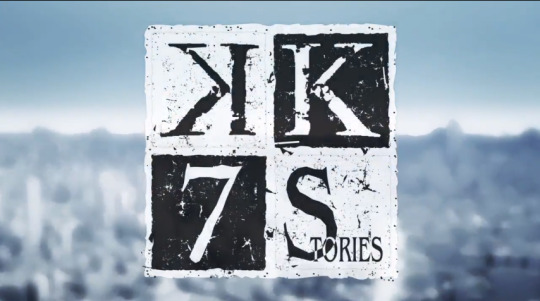
I binge-watched this a couple of weeks ago. I nearly forgot about these until I found the subs. Haha
Here are my thoughts and a few screenshots (like one for almost each movie). I’ll just say a few things, I guess? Except for LSW (movie 4) and Circle Vision (movie 6) and Idol K (shorts) which will have their own posts cause I have the feels.

Movie 1, “R:B - Blaze” shows us the beginning of how Munakata Reisi got his powers as the Blue King and his first meeting with Red King, Suou Mikoto.
It’s nice to see more stuff about the two clans and how things went before the series began - from within their groups and how they thought of each other. There are also more bits and pieces of the Kagutsu Incident and we get to see the former Blue and Red Kings at their final battle which is awesome.

Movie 2, “Side:Blue” - Like Sirius is about Kusuhara Takeru and Zenjou Gouki. Kusuhara is a member of Scepter4 who wanted to get in the Special Forces (You know, the group that fights directly under the Blue King which we see in the series) alongside his friends and everyone’s really supportive of him which is so nice. However, he’s not as good as they are yet and is told he’d only get in if he can get at least 1 clean hit on Awashima Seri on their spar. So far, no good.
Zenjou Gouki is the former Blue King’s right-hand man. He’s now retired and is working in Internal Affairs. He also watches over the training. Kusuhara ends up working under him later on and is also being trained by him when Kusuhara was given a time limit on his condition to join. Failure this time, though, means Kusuhara will lose his job.
This movie is... he got the job of course. Also, it didn’t end well. On his first day, too like why? Wtf?! I ended up crying when they told Zenjou what happened.
And I know Munakata is just trying to put logic into this and is actually feeling bad about what happened, too but freaking hell, man! That is not what you tell people who are grieving! I know you’re trying to rile them up and piss Zenjou off on purpose for a reason but still... you sound like a real jerk. This is why people think badly of you even though you’re not really that bad.
Also, this reveals why Munakata wants to have Zenjou out of retirement: Zenjou moves on instinct. Actions before thought: he does what’s needed and what's best especially in battle. He was the one who killed the Blue King before another Damocles Down happens after Kagutsu’s fell. He felt really bad for it and probably didn’t want to do it at all as Habari is his friend but it was for the best and so he moved without a second though. Munakata knows that Zenjou will do it again if needed. Munakata has Zenjou as some kind of fail-safe: if he’s become a danger like say, his sword is gonna fall, Zenjou would be able to kill him.
That kinda sucks to be honest. Zenjou was the one who took his own king’s life and he’s gonna be made to do it again if needed be. We all know how season 2 ended so it’s all good but still...
RIP Kusuhara Takeru. You’re one of the Best Boys and you deserved better.

Movie 3, “Side:Green - The Overwritten World” gives us Goujou Sukuna’s backstory. He came from a rich family but with very controlling parents. Finding out his only friend was a fake picked by his parents was the last straw which had him run away from home. He uses the JUNGLE points he earns playing the game so he could escape those trying to capture him to get him back to his parents.
This also shows how he met the Green Clan. How he met Hirasaka Douhan and their first fight against Mishakuji Yukari, which while I wasn’t able to get a screenshot (sorry) to show you, is really pretty. You know how the art for this show is all shiny and kind of have this realistic look, right? Their fight is more 2D-ish but has a purple hue. It’s better if you see it but it’s really, really pretty!
In the end, it also shows how Sukuna became a member of the Green Clan and that he and Hisui Nagare has some things in common. It made this group more interesting, sympathetic, and more human despite being the main bad guys if season 2. It made me like them a lot.

Movie 5, “Memory of Red - Burn” is centered around HOMRA and them planning Anna’s birthday party. I thought “Oh, a fun cute, episode with the Red Clan? Nice!”.
Then Tatara crosses paths with the Colorless King.
The it hit me...
Oh... no.
Yes, this movie is a direct prologue of the first season’s episode 1. How Totsuka Tatara died that fateful night. He’s a really nice guy, you know. They were having so much fun. Anna’s birthday was coming up, too.
When I saw the Colorless King, I started panicking. I told myself “It can’t be, right?” so when Tatara got back to the bar I was relieved. I thought it was safe but then he just had to freaking leave again! I was... I was muttering “No, please... someone please stop him...” while he was looking at everyone, unbeknownst to all of them, for the last time. I know I’m being overly dramatic here cause I already know his death is a foregone conclusion but still... I was getting really attached to these characters as the movie went on. I got to know a bit more about Tatara and why everyone is willing to murder a guy to avenge him in the series. It hurts, man. Even when I knew it still freaking hurts. I was crying when it finally happened.
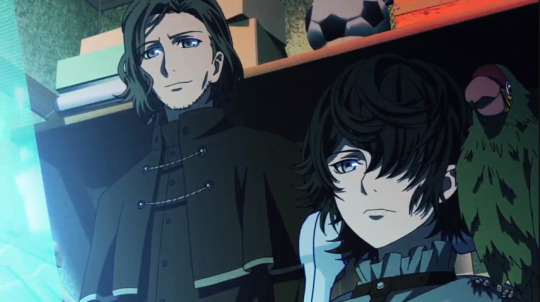
I said before I started liking them more cause of movie 3 but this, knowing they’re the reason why Tatara died made me hate them the moment I saw it. I still like the characters but I don’t think I could ever forgive them for this.
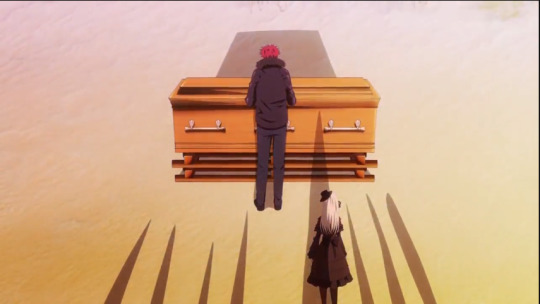
No Blood, No Bone, No Ash.
Nothing left, not even ashes. Only memories of you in the ones you love. The cremation scene is just as sad to watch. What’s supposed to be a birthday celebration became a funeral.
RIP Totsuka Tatara. You’d be remembered, never forgotten and will always be an important and beloved member of HOMRA.
Knowing what happened at the end of season 1, I hope you and Mikoto are happy watching the outcome of the final battle.
--
Just wanna point out before anything else that it’s got a bunch of ED songs for each movie but more importantly, the OP “Survive!” by Angela is a total banger. I ended up listening to it on repeat alongside “Kiss! Kiss! Kiss!” by the Idol K seiyuus. It’s so good. And the OP video is so pretty! There’s a difference in character designs this time around from the original series though and I’m sure you’d realize it when you finally watch it: their eyes are a bit bigger. It made them look younger and it’s something to get used to. I liked the older version but this wasn’t so bad. Still, for K fans, it depends on you what you think.
Anyways, the entire movie series was so good but I wish there were more. So many more backstories unexplained. I know they’re in the LN and manga spin-offs plus some extras on drama CDs and stories posted online but come on, they deserve an adaptation, too!
I really wish they’d made more for this series. If I had the money I’d buy the dvds for these. Or the artbooks. Have you seen the artbooks? The art for posters and stuff are all so pretty! I’d love a copy of them to be honest.
Anyways, I already made a post on Idol K and LSW and Circle Vision’s will be made later.
9 notes
·
View notes
Text
A film composer interviewed me...
I was recently honored to be approached by a film composer who wanted to interview me over a couple of drinks, and this is what they came away with...
Interview with a Film Director Cameron McHarg
Cameron McHarg grew up in the rainy, blue-collar suburbs of the Pacific Northwest. He has won the Gold Addy and Silver Telly Awards, and was a shortlisted winner for the Cannes Young Director Award for the commercials that he'd written and directed. His first short film, Kicking Sand in Your Face went on to success on the international festival circuit, and was later sold to cable networks in the US, Canada, Russia, and Ukraine. His second short film, the end has also had a long and successful run on the film festival circuit and has screened internationally. Cam has written two feature films currently in development set for him to direct: the 1970's motorcycle road film/crime/thriller - Sitiado and a gritty coming up age (Stand by Me meet Deliverance) drama set in the 1990 Pacific Northwest - Monroe Log. He is also in the early research phase of writing a crime/drama based around Apache gangs in the American southwest. Cam was recently featured in Volume 2 of The Top 100 Independent Filmmakers in the World, now available on Amazon.
1.How did you come to be a director/producer?
Cameron: I actually started as an actor. Then, I co-produced a documentary that ended up doing well and I earned a scholarship to attend the prestigious film program at Art Center College of Design In Pasadena. Besides, I was at a point where I just hated the idea of sort of waiting for someone to choose me. I hated that powerlessness. And I have always loved the whole process of movie-making. Whenever I did work as an actor I was very fascinated and interested by the entire process and I thought that would help me work my own way in without having that hopeless feeling anymore. I hoped I could mix the best of both worlds. And that’s how I got into it initially.
2. What qualities do you look for when hiring a composer for your project? Is there one quality or thing that will get you to consider someone more than others?
Cameron: It might sound like a strange answer, but since I am not a musician myself, all I can do is to abstractly describe feelings, moods, atmospheres; my musical vocabulary is limited. That’s how I would describe things anyway, even to actors. When I talk to a composer I would try to explain what I am looking for that way and if they could get what I am going after from just my description- that’s huge. I think it’s a difficult thing to understand. It’s like going to a hairdresser and you sit down and say: “I don’t know..I just want to look good.” If I can talk to a composer and stumble around just like I am doing now trying to describe the concept of the story and what I am trying to make it feel, and they can come back with something (and it does not have to be perfect, we can make adjustments) and really get it.. It’s not necessarily listening to the composer’s music and going: “Great!” It’s more about their ability to understand what I am trying to go for in a story: the mood, the feeling rather than a rational idea. A composer who is technically great and talented might not be enough. Someone with a sensitive soul would be a better fit.
3. In your opinion, is it more important for a composer to have a unique musical voice consistent in all of their work? Or is it important for the composer to have a broad range of compositional ability to draw from so they will likely be able to adapt to what the project needs stylistically in any given scene / scenario?
Cameron: I would lean towards the former than the latter. I think a lot of people can be very technically proficient doing a lot of different things, but people who have their own specific life experience and their unique background bring something very special to the table, that no one else can do, maybe. And I am more attracted to that. It’s true for me personally. I would be the same way about an actor. Again, it goes back to communication. If a composer can really get me..I would rather choose that over someone who can sort of do a little bit of everything. I think there is something beautiful about it. It is such a collaboration, there are not a lot of differences between an actor and a composer or anybody else. If you throw these ingredients into the mix, various artists that have that specific background instead of a bunch of technicians that are generally good at a lot of things, I think it’s going to be more colorful, there’s going to be more to it.
4. What do you want to see / hear in a demo cue from a composer? Something custom made for your project? Something from other projects in a composer's past that might be similar? Live recordings? Are MIDI sampled recordings ok? What format do you want any demo material in? (Audio CD, flash drive with audio files, video files so you can see how well the composer scores to picture, etc...)
Cameron: Ideally, it would be great to hear something custom, again, it goes back to this topic: I would like to see if the composer can understand what I am trying to do. Of course, I would be curious about what has been done before to get a feel for things. I will get back to that example again. We are all just collaborators trying to make a movie, we are just pieces of one big puzzle, and we are equal pieces. I hate auditioning actors, I would rather meet people and get a feel for them, I would want to see what they have done before, but it is more about mutual understanding and connection, trying to scope this movies together. To answer your question, ultimately, it would be nice to hear a shot of something that’s for the particular movie. It does not matter that much to me whether it’s live recordings or samples, it’s irrelevant. Video is not necessary, I would even listen to it with my eyes closed, I don’t need to see anything. It is not as important to me as getting that feel. But it’s me, I might be particular.
5. How do you budget for the music in a film? Do you determine score costs ahead of time based on the kind of score you want or is it based on a flat percentage of the film's budget? How do you determine what a composer's involvement is worth on your project?
Cameron: I hate the business aspect of it so much. I see a composer as important as anybody else. The composer is probably the most unrecognized artist in the film business. I think that if the music is good you don't even notice it, oddly enough. It’s similar to editing in this respect, if you do notice it- the editor might be doing something wrong. I just recognize them as being unsung heroes. I don’t know how to budget for it, I’d say it is usually a flat percentage of the film’s budget.
6. What is your opinion on a composer working for little to no monetary compensation (i.e. for free)? Many entertainment industry departments have union representation that sets a minimum pay "standard" for what those jobs cost from week-to-week or day-to-day. But composers do not have and can not unionize by a National Labor Relations Board decision from the early 1980s. Does this affect at all your hiring or budgeting process for music? What is the lowest budget amount you have ever had for music score? What is the highest amount?
Cameron: It’s so messed up. So many of us are asked to work for free and I’ve done it many times, as an actor particularly. The only exception to it if everybody is doing the film for free. I have done short films where everybody was paid next to nothing and the ultimate goal for us was to make something we are proud of to use it as a showcase. But nobody makes money off of short films anyway. If you are making a feature where somebody is going to profit off of it, it is an outrage if you are asked to work for free, everybody should be compensated. What you are doing is worth something and there should be no shame in asking to be compensated, because you are bringing something valuable to the table that no one else can do. And if there is a producer who is going to make a dime off of it, or anybody else, they should share. The lowest budget: I’ll start with zero, which I had to deal with more than once. The highest -is the film I am doing right now that is in the early stages of pre-production. The budget is small- around $1M dollars and I don’t know the exact numbers but it would the same as we would pay to the DP.
7. How do you communicate with your composer regarding the creative process? What can the composer do to make that easier for you as a producer / director?
Cameron: We’ve touched on this a little bit earlier: I can do odd things to try to communicate what it is I want. I would do clips from other movies, paintings, photos, sometimes other music but not usually, because I don’t want that to taint it. Sometimes in my description I’ll make weird sound effects. I can be so abstract and weird about it, I’ll do whatever it takes to describe it - I would even show odd symbols. In some ways I don’t like it to be super literal so that the composer, the artist, could interpret it in his own way. Going back to the actors, as a director, I would never tell an actor how to read the line ( “Do it like this”..) for him to copy that. I would say something more abstract: “Do it more red!” I would want them to interpret the feelings in their own way rather than me being a puppet master. Same with a composer: I would give you a certain feeling, atmosphere and see how that is colored through you. That’s where special stuff comes from. Anybody can imitate but what's the point? I want you to do it because there is something special about you. There is something I want to communicate through the prism of your perception. I am fishing for a surprise. I am not a dictatorial director, I am a collaborative director.
8. Is it a more important perception for a young composer to have credits assisting other "big name" composers on "big name" films even if their jobs and responsibilities on those films were more technical and nondescript like "scoring assistant" or "midi programmer"? Or is it a more important perception for a composer to have a list of feature films where they were the department head "composer" in charge and 100% responsible for music, even if those films were smaller, indie, "festival bound" projects that may not have had mass public appeal?
Cameron: I would definitely lean towards the latter. I would be intrigued if they were mentored by some big-name composers on a big movie that I have respect for, I would definitely be curious to see what they can do. But being involved in a big Hollywood movie does not mean much to me. I think that the pendulum swings back and forth and things change, but right now I am not impressed with Hollywood movies, and there are always exceptions, but right now I think they are in a bad place. There are a lot of movies with guys in capes and tights and that’s fun, I can have fun with it too, I love all kinds of movies, but it’s not what I came in to movies myself to do. I was influenced a lot by the stuff from the 70’s that was a whole different ball game. The films were much smaller and centered on people. I would be drawn to something that is more personal on a smaller level then something more peripheral on a bigger scale.
9. Have you ever had a bad experience with a composer? Did you learn anything from that? Has it affected how you work with a composer since?
Cameron: I haven’t. I’ve had experiences where on the first try or two, after I have done my best, probably clumsily, to communicate what I was going for, I ended up really having misses. And I felt a little bit frustrated, feeling that it was going to be tough, but we got there eventually. I think, if I had a really bad experience with someone, it would be more my fault then theirs. I think it would be my failure to communicate what I was trying to do, it would be my responsibility. I remember it was over the phone, the composer was in New York. I did not show any examples. The music that I wanted did not have anything to do with real instruments, it was more atmospheric. I tried to give him mood and imitate the sound with my mouth. As a result, I was frustrated with myself since I failed to communicate what I wanted.
10. From your perspective as a producer / director, what is the one piece of advice you would give a young composer working to build their career in this industry?
Cameron: I think it’s difficult and even unfair, with some rare exceptions, for a young artist to have a lot of expectations thrust upon them, whether it’s from themselves or the outside world, because it is hard to really give everything that you are capable to offer until you really know yourself. It often comes with time, unfortunately, with a little bit of age and life experience, and exposure to life. So, give yourself a chance, be patient and kind to yourself and allow yourself to experience everything life has to offer, including the stuff that’s painful; take it as a gift, use it. Don’t put a timeline on yourself, live your life, don’t put a bubble around yourself: “I am a composer, a musician, all I’m going to do is write music”. Allow yourself to be exposed to life, try to really live it, don’t isolate yourself, let everything in life color you and color your work. Never quit, have faith that when you are ready the time will come.
I have had nothing but composers contact me over the years. I don’t mind it, I actually look at their stuff and listen to it. I understand it’s a hustle, I have done it as an actor. I think it’s smart, because you know what, I will go back; I am doing a feature early next year and these guys that are emailing me are on my mind. I’ll listen to their stuff first before I do any search. I think there’s value in that. You have to be smart about it, of course, don’t email me every week.
And lastly, own what’s special about you and don’t try to be everything. Figure out who you are and really own and market that rather than trying to be like everyone else.
1 note
·
View note
Text
Apart from Michele lobbying for this film in the wake of the horror of Hannibal, I wouldn’t have considered 2014 disaster flick Into The Storm for a rewatch, had ITS not been on Irish free TV at the end of January. That already preempts my verdict to some degree. You see, I don’t think that it is what we call “ganz großes Kino” in German [great cinema]. To stay with the metaphor, it’s probably more along the lines of “ganz großes Damentennis” [great women’s tennis]. Ok, those are in-jokes for those who can speak German. Very bad form, Guylty, very bad! What it means is: ITS is not a triumph of early 21st century cinema. And this is why:
Recap
It’s an ordinary day in Silverton, Ohio, where single-parent assistant principal Gary Fuller herds his teenage sons Trey and Donnie to school. Trey is documenting the day with his camcorder; Donnie, the elder of the two, is pissed off with his dad. Daddy Gary at the same time is distracted by the preparations for the afternoon’s graduation ceremony. Meanwhile, a motley crew of ‘storm chasers’ have come into the area because they expect a strong hurricane to landfall. And it does – but it’s the mother of all hurricanes, a monster storm that wreaks havoc in Silverton, scatters the graduation, and, worst of all, traps Donnie Fuller together with love interest Kaitlyn in a disused mill where they nearly drown – if it hadn’t been for Daddy Fuller, the quirky brother, and some unexpected help from the storm chasers. But all’s well that ends well: daddy comes to rescue, the youngsters are saved at the last minute, the nasty career-storm chaser gets his comeuppance but simultaneously redeems himself, and the Fuller lads are one happy family again.
youtube
So, we’ve got the ingredients for a regular summer blockbuster here: (natural) disaster with opportunity for big time CAD, vaguely topical issue (global warming), family dynamics (dad vs son), small little love story (Donnie & Kat, Gary & meteorologist Allison), nasty slave-driving boss getting what he deserves, single-parent mother separated from her child because of work, two country-bumpkin eejits for light relief, major, nail-biting drama and a happy ending. Maybe some of what is wrong with the film is already visible in that list: There is too much in it, and it doesn’t *quite* know what it wants to be. It takes on too many things, and instead of just being content with being a two-dimensional, silly disaster movie along the lines of Sharknado, it wants to take itself seriously, attempting “issues” in order to attract viewers. The strength of disaster movies is usually the special effects or the computer design of the catastrophe. So why obscure that silly fun with serious issues? Global warming as the cause of intense weather phenomena? Of course, we know that. But do I look to a summer movie to learn more about the effects of climate change? Eh, no! Just as much as I don’t want to get into a subtle subplot about single-parent issues and the strains of having to separate from your child in order to earn money. Just get on the with the disaster, throw around a few 10-ton-trucks and jumbo jets, and I’ll be happy.
Not sure where this gif comes from – credit to the maker
In that sense, the strongest scenes in the movie are the action/disaster sequences. When Gary runs across the street after his car is inadvertently crashed, and a pick-up truck smashes into the pavement about ten feet beside him, then that is great (disaster) cinema. Armitage clinging on to a car door for dear life – and to save met lady Allison from being sucked up into the tornado: predictable but essential ingredient to a disaster movie. And bonus: wet bum shot. Of Armitage! Not the woman! *That* would be sexist! A whole group of helpless humans, huddling in a massive drain for shelter against the storm, being thrown around by mother nature – great both in terms of providing scale as well as giving more opportunity for heroics. But all that sentimental crap about Allison not being with her daughter, Gary and Donnie’s relationship being strained, and Pete the storm chaser pressuring his underlings into risking their lives – unnecessary and not believable.
Cardboard Cut-outs
Not least because the characters are mere cardboard cut-outs, stereotypes, and as such just a cheap trick to offer a quick n easy way to identify or engage with one of the characters. Yet I found it strangely difficult to get invested because the characters were just too stereotypical: The hard-working father who is trying his best to bring up his sons; elder son has an issue with dad being over-protective. Young son OTOH is happy-go-lucky popular kid. Met lady has small daughter who lives with grandparents because mum has to travel for work: I should’ve latched on to these people immediately because I share one massive characteristic with them – I am a parent. (Happy mother’s day, btw.) But that one facet in a person is not enough for me to connect and engage with a character. I understand that ITS is a film that is basically telling a story in real time. So there is no opportunity for massive insights or for character set-up. Or maybe there would’ve been if the film had concentrated on fewer characters. Apart from Pete the head storm chaser, did we need Allison and the other storm chasing crew? We certainly didn’t need the town eejits, and we probably could also have done without the burgeoning love story between Donnie and Kaitlyn. If Gary Fuller was the main character, then the film should’ve focussed on him – and his heroics. That would’ve done the trick.
As for Armitage in the film: No complaints as such. His performance is solid – as it always is. You can sort of tell that this is basically his first time playing an American character. The accent doesn’t sit well with him – it just doesn’t sound right imo: When he speaks, his whole voice changes. It’s deeper in tone, and not as melodious as usual. Which is a pity, because his voice (and his vocal talents) are always an asset to any show. Otherwise he gets away with portraying the great looking, fit and healthy athletic All American dad, right down to those beautifully regular white and shiny front teeth. I do buy his act as a dad – in fact more so than his act as the vice principal of a small town high school. The man just is too gorgeous for such an existence. Casting fail *grins*.
The effects in the film work well – once you suspend your disbelief, everything is possible, and the fire tornado or the monster hurricane that bounces jumbo jets around as if they were matchbox toys, look reasonably real. The climactic storm scene – with Pete’s (literal) comeuppance – OTOH is designed straight from baroque altar pieces (see right). Towering clouds fading into white… You almost expect the eye of providence to pop up on top of the screen. And so sickly sweet with its bright clouds and shining light and predictable that it spoils the otherwise hair-raising disaster porn.
For me, the greatest regret of the film is that its concept obviously changed at some point. The initial idea of basing the majority of the film on “found footage” – was actually a great idea, both in terms of aesthetics as well as story telling. But that concept eventually is thrown out of the window even though little brother Trey, who executes the concept at the beginning of the film by shooting a ‘time capsule project’, continues to carry the camera with him. From the middle of the film found footage is not happening anymore – which makes the film strangely asymmetrical. One wonders whether the film was significantly reshot after screen testing? There definitely were reshoots, as can be seen as early as the first scene of the film when Gary’s hair is definitely shorter than a scene later…
#gallery-0-4 { margin: auto; } #gallery-0-4 .gallery-item { float: left; margin-top: 10px; text-align: center; width: 50%; } #gallery-0-4 img { border: 2px solid #cfcfcf; } #gallery-0-4 .gallery-caption { margin-left: 0; } /* see gallery_shortcode() in wp-includes/media.php */
Miraculous hair growth. Well, RA has mentioned before that he has won prizes for growing his beard faster than anyone else… Looks as if the Armitagean follicles are stuff of legend and miracle!
Final verdict
Unfortunately, the second time ‘round, the film doesn’t improve. When I watched it in the cinema – summer evening, teenage son with me, bag of pop corn at the ready – it really did what it set out to do: It was a meaningless summer flick, more aimed at the boys than the girls, easily whiling away 89 minutes with lots of rain, thunder, assorted farm equipment flying through the air and the occasional jumbo jet twirling across the airport concourse. Four and a half years later, the film hasn’t exactly become a cult classic. And it’s easy to see why: It’s neither excruciatingly bad, nor exquisitely good. Maybe the audience wants to see even more extreme effects – or the opposite is true and in light of global warming the audience *doesn’t* want to be reminded of the havoc that the climate can play with us. And without any particularly exciting human interest story in the film, ITS has been laid to rest in the mid-week movie graveyard. That’s not what Richard Armitage deserves – who gives his best as he always does. Maybe all it was for him, was an elaborate screen test. He certainly comes across well. And at least he has ticked another genre off his list.
What about you? What do you think about the film? Comment below or write a post on your blog and link back to me so we can discuss!
PS: April is coming! And we need a new re-watch. Suggestions?
Re-Watching Into The Storm – Not Much of a Twist Apart from Michele lobbying for this film in the wake of the horror of Hannibal, I wouldn’t have considered 2014 disaster flick…
8 notes
·
View notes
Photo


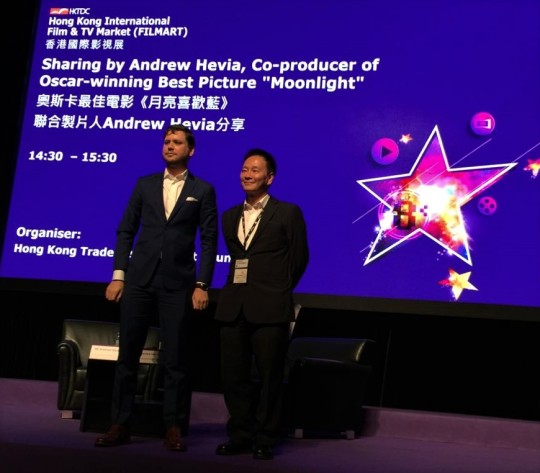
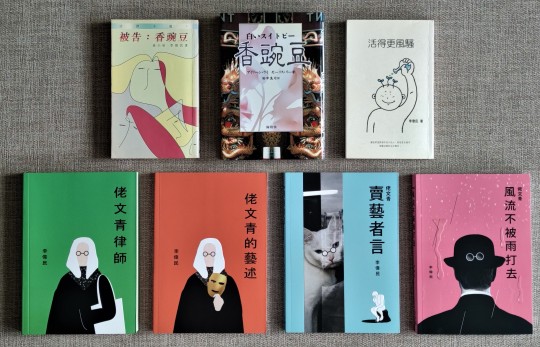


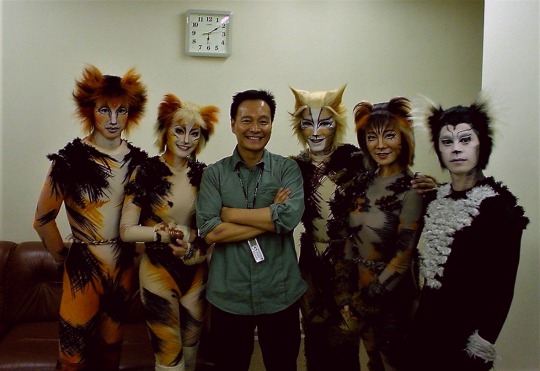
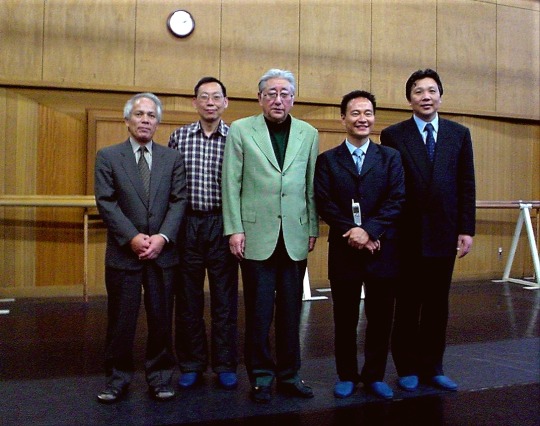
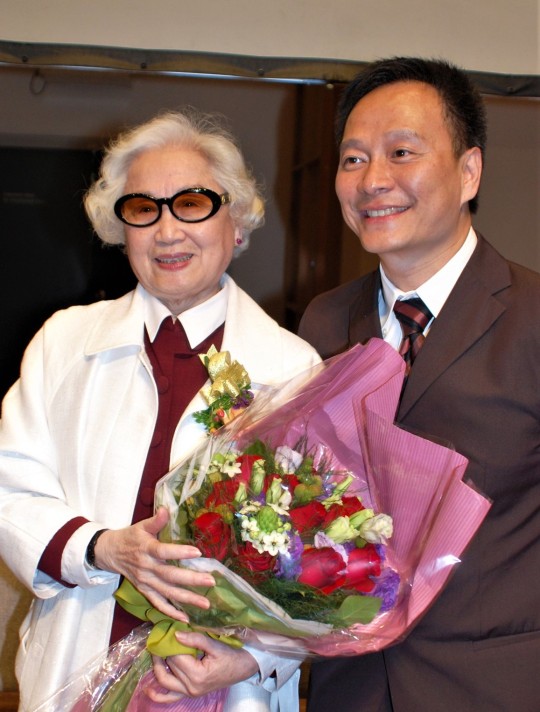
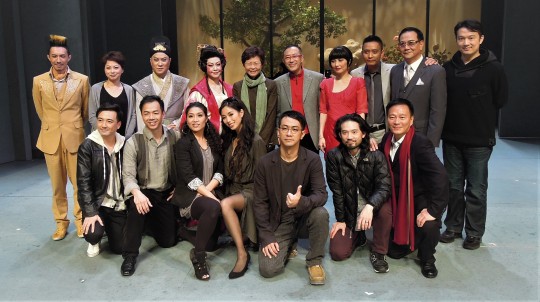
“The Artistic Lawyer or the Lawyerlike Artist?”
(acknowledgement: Interview of Hong Kong Lawyer, publication of The Law Society of Hong Kong, with Maurice Lee) (by Sonali Khemka)
There is a widely accepted theory that people are either left-brained or right-brained, meaning that one side of their brain is dominant. If you are mostly analytical and methodical in your thinking, you are said to be left-brained. If you tend to be more creative or artistic, you are thought to be right-brained. In Maurice Lee’s case however, the equal dominance of both sides has shaped him into the person he is today – a lawyer with the soul of an artist.
Writing Right
Lee enjoyed writing from as early as his teenage years, when he would take part in and win several writing competitions in high school. Encouraged by these victories, he applied for an after-school-scriptwriting class organised by Hong Kong TVB in 1978 – a class that only had twenty spots and over 3,000 applicants. At the age of seventeen and still in high school, Lee managed to bag a place as the youngest member of the class. “The classes were intense. They were held five times a week in the evenings and for three hours each,” he recalls. His immense enjoyment of the activity and aptitude for it led him to not only complete the course but also work part-time as a scriptwriter for TVB for few years after graduating from high school. At the time, his heart was set on becoming a professional scriptwriter or director.
However, the left side of his brain nudged at this point and Lee was tempted to pursue a university degree and career that was more academically sound and commercially viable. “My family told me that if you are in the creative field in the early 80s, you will face a very rocky path with many ups and downs. But if you are a lawyer, you have a safe landing,” he shares. After an internal battle between the left and right side of his brain, Lee eventually accepted his place in The University of Hong Kong’s School of Law. Not keen on giving up on his creative side, he continued working as a part-time scriptwriter for TVB throughout his four years in law school, focusing primarily on hour-long dramas and eventually switching to comedy. “I was good at writing dramas, but the producer told me I was not emotionally mature for the material in the drama shows,” he recalls amusingly. “I wasn’t at the appropriate age to write about passionate love affairs and dramatic struggles, so I switched to comedy,” he adds.
Lee’s creative career has taken different shapes and forms – a result of his willingness to not over plan and make the most of any worthy opportunity. In the mid-1980s, he wrote as a columnist for local newspapers, contributing 500-word prose pieces in Chinese on various topics and in the 1990s, Lee even garnered a fair amount of fame as a program host for a talk show for Commercial Radio Hong Kong. Around the same time, he was invited to write fiction literature by Cosmos Books and channeled his very own John Grisham by opting to write legal fictions. His present creative career, which commenced around six years ago, stems from an invitation from two online news platforms – HK01 and Orange News – to write critiques on different forms of art and culture, varying from movies and plays to visual arts and cultural trends. He supplements this with his own Facebook page, named “HKArtMan” where he shares his views on the same in a personal capacity. In addition, Lee also takes on the role of performance organiser when time permits and has previously organised a play and a concert – something he believes Hong Kong is in more need of.
Hong Kong’s Art Scene
Lee believes that prior to the 2000s, the city’s art and cultural scene was plagued by apathy and was a severely overlooked area. In the 2000s, Lee feels the situation has improved but not enough. “There is more curiosity and awareness, but people do not do enough to support the development of art and culture. There is too much financial reliance on the government only,” he shares. “Hong Kong is in a serious need for rebranding,” he adds. “We are currently just a financial center – like Zurich or Luxembourg and relying too much on old industries like logistics and trading,” he explains. Lee envisions a Hong Kong that is on par with global cultural and financial hubs like London or New York City and believes moving towards intangible assets or intangible intellectual property such as the arts is crucial. “We need commercial energy to be put into the art and cultural circles and more money from private companies and investors. That way more people will feel encouraged to pursue artistic careers because they can earn a decent income, which will in turn drive Hong Kong’s art and cultural scene,” he shares. His ultimate dream is what he calls an “Art Economy for Hong Kong,” an environment whereby art becomes more than just a leisurely activity and can be pursued as a commercially viable career.
In order to help realise his vision for a more art-savvy Hong Kong, he plans on putting together a concert and a musical for export to the Greater Bay Area (GBA) next year. “If they are staged only in Hong Kong, there can be less than five shows. However, if I export them to eleven cities in the GBA region, I can stage sixty shows – it makes more sense as an economically sustainable activity,” he explains. Lee believes exporting Hong Kong’s artistic talent is key, if financial prosperity in the arts and cultures is to be achieved. He recalls Hong Kong’s former status as “Hollywood of the East”, a time when films made in the city were enjoyed fervently beyond the borders. Similarly, he is hopeful that other forms of home-made art will also someday be appreciated in different markets.
Critically Creative
For Lee himself, he is content with how his career and personality have shaped out to be. “People tell me as a lawyer I talk like an artist, and as an artist I talk like a lawyer,” he shares. “As a lawyer, I am more sentimental, humanitarian and expressive and as an artist, I always have a mental framework. Artists can be quite unorganised. I am very organised. I put bits and pieces under different headings and am good at fulfilling long-term artistic projects because as a lawyer you are always handling long term cases. You have to be systematic and strategic,” he explains.
Lee encourages lawyers to pursue a creative side too, albeit on a personal level – something he believes would only make them more professionally sought-after. “People think lawyers are checklist animals, I think they are more than that. There is a lot of creativeness and criticality involved in being a lawyer when we handle a case and we should keep those sides alive,” he shares. “There are two minds in demand nowadays – the creative mind and the critical mind. No matter what profession you are in, you should have both,” he adds. He is aware that evolving from executors who merely follow instructions to critical thinkers who ask questions and initiate change can cause adverse reactions – “People find this type of person to be very maa faan (annoying/troublesome), they know too much and ask too much,” he shares with a grin. “But it is important to stand out, both minds will help each other,” he adds.
As a consumer or spectator, his favourite types or forms of art include ballet, paintings by American artist Edward Hopper and the diminishing art of Cantonese opera. “I admire ballet because it is so physically challenging and difficult. I like paintings by Edward Hopper because they make me feel sad – his pieces are very poignant. And I treasure Cantonese opera because it is sadly disappearing. They use old Shakespearean style Chinese dialect which might someday vanish completely,” he explains.
Having enjoyed a rewarding career so far, with ups and downs, with legal wins and creative commendations in abundance, Lee has a particular memory that still lingers vividly. “Fifteen years ago, I was the Vice-Chairman of the Hong Kong Arts Development Council. At that time, the famous movie director Johnnie To and I organised the first outdoor media art exhibition outside the Hong Kong Cultural Centre in Tsim Sha Tsui. The idea was to do some artistic projections on the external wall of the cultural centre and these projections were shut off by 11:00pm. I was at the exhibition till closing on the first day when a young boy came up to me, shortly past 11:00pm. He was 14-15 years old and he begged me to allow him into the exhibition area. He said his family is poor and he works at McDonalds at night. He lives in Tai Po and has come all the way to Tsim Sha Tsui to view the exhibition because he was so interested in what it might be like,” Lee recalls. Moved by the young boy’s passion and determination, he allowed him in as an exception. Till this date, Lee wonders what became of that young boy and whether he ended up pursuing something artistic. “I was so touched and amazed and I wonder how many boys and girls or men and women in Hong Kong have that kind of passion for something non-commercial, something artistic and spiritual,” he muses. If it fortunately turns out to be that the boy is one of our readers, Lee would be delighted to hear from you.
The Law Society of Hong Kong Journal
MLee
中文版 Chinese Version:
https://www.patreon.com/posts/wo-de-2021nian-53673006?utm_medium=clipboard_copy&utm_source=copy_to_clipboard&utm_campaign=postshare
"Youth Dance" Acknowledgement - 中國有嘻哈 official https://youtu.be/PNlC__GiqaY
Movie: “Time” Trailer Acknowledgement-安樂影片 Edko Films Ltd https://youtu.be/g0TT_mwq-DI
Interview of Petrina Fung and Patrick Tse Acknowledgement – ATV 亞視數碼媒體 https://youtu.be/BJnMtmaLzwQ
0 notes
Text
FEATURE: Magic, Mirth, and Romance in Beyond the Boundary
It's a new year full of new possibilities, but that doesn't mean that we as anime fans should neglect the past works that laid the foundation for our present circumstances, and so “Cruising the Crunchy-Catalog” is back for another round of catalog recommendations to help connect new fans with older titles that they may have missed the first time around.
This week, we're traveling back in time to the fall of 2013 to take in a tale of youthful romance, high school shenanigans, and martial violence of a spiritual nature. Please join us as we check out Beyond the Boundary.

What's Beyond the Boundary?
Based on the light novel series written by Nagomu Torii and illustrated by Tomoyo Kamoi, Beyond the Boundary is a spring 2013 TV anime with direction by Taichi Ishidate and animation production by Kyoto Animation. Crunchyroll describes the story of the series as follows:
“There is a girl who is the last surviving member of a ‘certain clan’ and a ‘half-youmu’ boy who shouldn’t exist... This is their story.
Beyond the Boundary follows the romcom misadventures of Akihito Kanbara, a second-year high school student and the above-described half-youmu boy, and Mirai Kuriyama, a first-year high school student who moonlights as a Spirit World Warrior.
Spirit World Warriors protect the mundane world from supernatural threats, while youmu comprise those supernatural threats, so the “meet-cute” moment between these two would-be high school sweethearts involves Mirai attempting to run Akihito through with a magic sword made from her own accursed blood.

Phantom World.
Rather than being a work of “magical realism,” Beyond the Boundary is more “realistically magical.” While the main characters exist in a mostly mundane setting centered around their high school, they also regularly engage in climactic battles against youmu, otherworldly entities spawned by negative human emotions.
While the youmu can affect the human world, they are entirely invisible to ordinary human beings. Only the spiritually gifted are able to see and interact with youmu, and so Beyond the Boundary functions on two levels: as a straightforward story of magical combat, but also as a metaphor for the teenage troubles and adolescent anxieties that are largely unseen by the adult world.

Love & Chunibyo.
Despite the high concept magical premise, Akihito, Mirai, and the rest of the gang spend a lot of the series goofing around like ordinary teenagers, and just like ordinary teenagers, they are crackling with all of the unbridled but directionless energy and laser-focused horniness that so often define the adolescent experience.
While the Spirit World Warriors are dealing with massive magical crises, Akihito and his friends are more concerned with managing the day-to-day business of the high school literature club, awkwardly attempting to woo one another, and earning enough money to maintain a steady snack supply. The juxtaposition between high stakes fantasy and everyday high school romantic comedy makes Beyond the Boundary a more mellow viewing experience than if it were nonstop drama and action.

Commonplace Supernatural Battles.
From a technical perspective, the standout feature for Beyond the Boundary is the conflict with the youmu, and Kyoto Animation pulls out all of the stops to animate this series. Even nearly eight years after its initial broadcast, the visual aesthetic of the show is simply stunning, with dynamic fight choreography, smooth character animation, and mind-boggling special effects.
What Kyoto Animation was able to accomplish here on a TV production schedule and budget is absolutely breath-taking, and even if you're not a fan of romantic comedy scenarios, if you crave top-notch supernatural action, then Beyond the Boundary is the show for you.

School's in Session.
Crunchyroll currently streams Beyond the Boundary in regions such as the United States, Canada, Puerto Rico, Australia, New Zealand, and American Samoa. The series is available in the original Japanese language with subtitles in English. Beyond the Boundary is also released on home video in the United States by Sentai Filmworks.
With outstanding visuals, an off-kilter sense of humor, fantastical action sequences, and just enough intrigue to keep the audience guessing, Beyond the Boundary is a great choice for novice and experienced light novel fans alike. If high school romance and supernatural exploits are your cup of tea, and if the series is available in your area, then please consider giving Beyond the Boundary a try.

Thanks for joining us for this week's installment of “Cruising the Crunchy-Catalog.” Be sure to tune in next time when we tackle the family drama and gourmet delights of a recently widowed dad trying to learn to cook for his young daughter with a look back at the summer 2016 TV anime, sweetness & lightning.
Is there a series in Crunchyroll's catalog that you think needs some more love and attention? Please send in your suggestions via email to [email protected] or post a Tweet to @gooberzilla. Your pick could inspire the next installment of “Cruising the Crunchy-Catalog!"

Paul Chapman is the host of The Greatest Movie EVER! Podcast and GME! Anime Fun Time.
Do you love writing? Do you love anime? If you have an idea for a features story, pitch it to Crunchyroll Features!
By: Paul Chapman
0 notes
Text
The Weekend Warrior 12/11/20 - MINARI, THE MIDNIGHT SKY, LET THEM ALL TALK, WILD MOUNTAIN THYME, PARALLEL, WANDER DARKLY and More!
Honestly, I almost didn’t write a column this week for reasons I’ll probably be ranting about for a few more months, but the long and short of it is that I’ve now been writing movie reviews for 19 years, as well as writing a weekly column through most of that time, and I’m kind of sick of working my ass off, usually for very little money, and just not getting anything out of it.
This mainly came as I crossed 200 reviews for the year a few weeks back. As I was preparing to write this week’s column, Rotten Tomatoes, where most of my reviews have been available as FREE content for the past 17 years, decided to upgrade a number of critics to be “Top Critics”… but not yours truly. I have a lot more to say about this but don’t want to waste any more of my time or anger right now. I will be wrapping this column up and taking some time off for a month in January and deciding whether I want to keep wasting my time every week for no money and little feedback. It really just isn’t worth it anymore.
Fortunately, I saw a few good movies this week, and more than a few bad, so let’s start with one of the good ones, shall we?

This week’s “Featured Flick” is Lee Isaac Chung’s MINARI (A24), which like Nomadland last week will get some sort of virtual cinema release in New York and L.A., presumably that can be seen across the country. It will then get its official release on February 12, 2021.
The movie stars Steven Yeun from The Walking Dead as Jacob, a Korean father who brings his family to an Arkansas house in the middle of nowhere in the ‘80s, hoping to start a farm. His wife Monica (Yeri Han) is not happy with this decision but their kids Anne (Noel Cho) and David (Alan S. Kim) try to adjust to the new life. Things aren’t going well but then Monica’s mother Soonja (Yuh-jung Youn) shows up, that just adds more pressure on Jacob, and the kids, especially David, who hates the quirky older woman who acts nothing like a grandmother.
I’d been hearing about Minari going all the way back to its debut at Sundance, and though I remained skeptical, I finally saw it a few months ago an again over the weekend, and it’s one of my favorite films of the year, probably Top 5. To me, it’s somewhat in the vein of The Farewell, my number 1 movie of 2019, vs. the Oscar Best Picture winner, Parasite. It’s a very personal story for Chung who based some of the experiences on his own childhood, which once again proves the adage that if you’re going to write a movie, make it personal since that’s the most likely to connect with others. (Not always true, but it was great advice when I was given it.)
It takes a little time to understand why Minari is so beloved, since Chung takes an interesting approach where we see various scenes that don’t necessarily seem to tie into some sort of plot. Characters like Will Patton’s ultra-religious zealot who seems to be a bit lost when Jacob takes him on to help with his farm. Otherwise, we see various character interactions as things get tenser and tenser between Jacob and Monica, who are fighting all the time. Although the drama does get intense at times, there’s a lot of joyful and fun moments, particularly those involving the wacky grandmother and her dysfunctional relationship with her grandson. I also enjoyed the relationship between the two kids where Anne is always protective of her younger brother, who has some sort of heart illness.
It's a beautiful movie with an equally gorgeous score, but it’s really in the last 20 minutes or so when we start to see where Chung has been going with all these seemingly disparate elements, which builds up to a wonderful ending. Yeun is terrific, and the fact he reminded me of my own father -- we’re neither Korean nor have I ever been to Arkansas -- shows why his subdued performance is so effective. Overall, the film proves that however many awful things life might throw at you, your family can always fix things. I love that message, and I hope others will find and love this as well.
After its one week in virtual cinema, Minari will get an expanded theatrical release starting February 12… hopefully, New York City theaters will be open by then and I can see it in a theater.
Film at Lincoln Center in New York also is starting its 49th annual “New Directors/New Films” series, which was delayed from March, although being virtual, the movies in it can also be viewed nationwide for the first time. I feel like a lot of movies that were scheduled to play ND/NF ended up being released already but there should be some interesting things in there.

George Clooney’s latest film THE MIDNIGHT SKY is based on Lily Brooks-Dalton’s novel Good Morning, Midnight, in which he plays Augustine, a scientist dying on his own at the Barbeau Observatory in the Arctic, who has to warn a group of astronauts returning to earth that it’s no longer safe for them to return.
Clooney has made a lot of good and great movies over the years, so that I’m one of those people anxiously ≠waiting for him to make something great again after the disappointment of Suburbicon. Midnight Sky is definitely one step forward and a few steps back, as it’s impossible not to think of previous Clooney movies like Solaris and Gravity, as well as The Martian and Passengers and Ad Astra. Yes, we somehow have gotten to the point where every year there’s some sort of space movie, and while Midnight Sky at its best is better than Solaris or Ad Astra (sorry, but I was not a fan), there’s enough that’s so quizzical and confounding I’m not sure people will be able to follow what’s going on.
Much of the first half of the movie involves Clooney’s Augustine alone at the Artic base interacting with a little girl (Caoillin Springall) who is completely silent. If it’s ever explained what the girl represents, I must have missed it. There are also flashbacks to Augustine’s earlier career as a scientist and explorer played by a somewhat only semi-impressive Clooney kinda look-alike in Ethan Peck.
The best moments of the movie involve the crew of astronauts on the spaceship Ether, including Felicity Jones and David Oyelowo, who are in a relationship, Demián Bichir, Kyle Chandler and Tiffany Boone, as they deal with various issues. This is really where comparisons to Gravity and The Martian are earned, but that’s such a mighty quintet of actors that these sections are far more interesting than sullen bearded Clooney with his young ward. The production design and visual FX in these portions of the film are also quite impressive.
The Midnight Sky throws a lot at the viewer but then tries too hard to be quizzical and enigmatic about how all of it ties together until the very end. I feel that some of Clooney’s more mainstream fans will be quite confounded and possibly even disappointed. The Midnight Sky is Clooney taking a swing and only partially connecting, and it might require multiple viewings to feel like it’s a worthy addition to his filmography.
Either way, The Midnight Sky will open theatrically in select cities this week and then be on Netflix on December 23, just in time for depressing everyone on Christmas!
Also hitting Netflix streaming this week is Ryan Murphy’s musical THE PROM, which I reviewed last week. It’s great, I loved it, and can’t wait to watch it again!
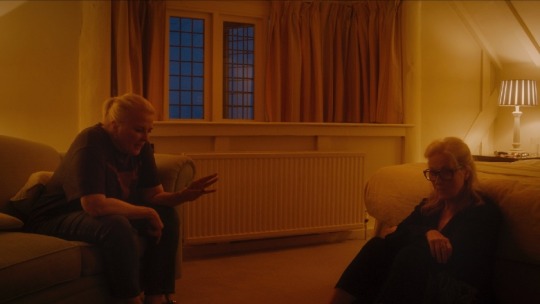
Next up is Clooney’s pal Steven Soderbergh, whose new movie LET THEM ALL TALK, will premiere on HBO Max this Thursday, December 10. It stars Meryl Streep as renowned writer Alice who is called to England to receive a prestigious literary award. Since she doesn’t fly, she’s booked on a cross-Atlantic trip on the Queen Mary II ship. Alice decides to bring her old friend Roberta (Candice Bergen)—whom hasn’t spoken to her in three decades--and Susan (Dianne Wiest) as well as her nephew Tyler (Lucas Hedges) to serve as her assistant so she can focus on her writing. Little does she know that her young agent Karen (Gemma Chan) is also on the ship hoping to find out what Alice is writing about with the help of Tyler, who is quite smitten with her.
I’m not sure where to begin with one of week’s films that I probably had the highest expectations and ended up leaving me with the most utter disappointment. I wasn’t really that crazy about last year’s The Laundromat, and I’ve generally found Soderbergh’s work to be hit or miss over the last few years. I loved his thriller Unsanefor instance, and the Magic Mike movies were fun. This one, written by author Deborah Eisenberg, is just plain boring for most of it, offering nothing particularly interesting or insightful, as it’s basically another movie where Streep is playing a character who moans about how difficult her life is and how much better everyone else has it. I mean, if I wanted that shit, I’d spend more time on Twitter than I already do. And then there’s Hedges, one of my favorite young actors over the past few years, who seems to have fallen into a niche playing
In fact, my favorite aspect of the film was Gemma Chan, who plays a character with far more depth and dimension than normal, although much of her role is just to spy on Alice and fend of the subtle advances by the much younger Tyler. The two actors have some fun scenes together, far more lively than anything involving the older actresses, but you always know where it’s going. It’s kind of awkward and painful to watch Hedges bomb so hard. (At least he fared better playing a similar role in French Exit, but in that one, his love interest was Danielle Macdonald.)
The movie looks good with Soderbergh handling his own camera duties and cinematography as usual, and it’s scored with the same hipster jazz he might have used in one of his Ocean movies, but the movie just goes on and on and on, and it hs one of the most “what the fuck?” moments you’ll see this year.
If you can imagine one of The Trip movies without any of the laughs or the delicious food porn…but on a ship, that’s basically what you end up with. More than once while watching Soderbergh’s movie, I was ready to abandon ship.

And from pretty bad, we go to much, MUCH worse. Do you know what thyme it is? It’s WILD MOUNTAIN THYME!!!
John Patrick Shanley adapts his own play Outside Mullingar into a film that will be released in theaters and On Demand by Bleeker Street this Friday, and believe me, its biggest problems isn’t some of the awful Irish accents on display, but they certainly don’t help. Emily Blunt plays Rosemary and Jamie Dornan is Anthony, childhood friends who live down the street from each other in their Irish farming community. When they grow up, Rosemary’s father dies leaving her with a plot of land that forces Anthony and his father Tony (Christopher Walken) to have to use a gate to get to their home. Remember this gate, because it’s going to be mentioned so much over the course of the movie, you’ll wonder why the movie wasn’t called “Wild Mountain Gate.” (It’s actually named after a song that Blunt’s character sings for no apparent reason.)
First, you’ll have to get past the odd choice of the very non-Irish Walken in a key role as the dead narrator of the story with that aforementioned horrid accent. It won’t take long for you to start scratching your head how a noted playwright like Shanley could write such a horrible screenplay. Soon after, you’ll wonder how he convinced someone to finance making it into a movie. I’m normally a pretty big fan of Blunt, but this movie and role might be one of her biggest missteps as an actor to date. As a child, Rosemary was told by her father that she was the White Swan in Swan Lake, so of course that will lead to
It’s not long before Jon Hamm shows up as one of Anthony’s distant relatives who also has interest in Rosemary’s plot of land – nudge, nudge, wink, wink. Pretty soon we’re thrust into awkward love triangle rom-com that falls somewhere between Leap Year and The Holiday. Not exactly something you’d expect from the filmmaker behind the drama Doubt that produced multiple Oscar nominations for the cast, eh?
Instead, Shanley ends up trying to foist the… I don’t want to call it chemistry. What is the exact opposite of chemistry? Between Blunt and Dorman with one long boring conversation after another. At one point, they’re having a romantic chat about suicide, the next Anthony is telling Rosemary that he thinks he’s a honeybee. I mean, what the holy fuck?
Honestly, the whole thing is just grueling to watch, because you wonder how so much talent could falter so badly, particularly Shanley? Even the recent Shane MacGowan doc was a far more romantic take on Irish farming than this could ever possibly be.
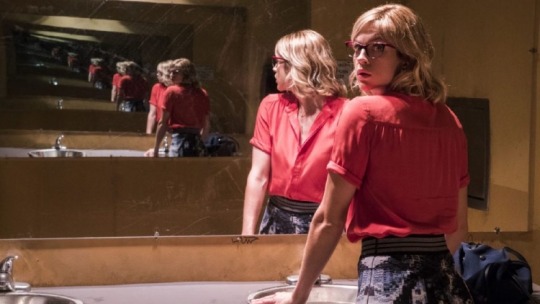
One of the nicer surprises of the week is the sci-fi thriller PARALLEL (Vertical), which will be in theaters and On Demand this Friday, and it’s likely to be missed by a lot of people who would enjoy it. Directed by Isaac Ezban from a screenplay by Scott Blaszak, it follows four young people working in the tech sector of Seattle who discover a mirror in a hidden section of the house they’re renting that apparently allows them to experience other dimensions and other versions of their lives. Soon, they’re experimenting with different ways they can make money and achieve fame, although not all of them are cool about how they’re doing it.
Although Parallel opens like a home invasion thriller featuring the great Kathleen Quinlan, we soon learn that it’s a red herring before we meet the quartet of young entepreneurs working on a parking app with an almost impossible deadline. When they find the mirror that leads into an alternative dimension, they immediately start to experiment with figuring out what is happening exactly, and once they do, they realize they can make money by stealing from “alts” i.e. other versions of themselves. Soon, their success starts driving them insane with a desire for even more money and power.
Ezban’s movie benefits from a talented mostly unknown cast, including Martin Wallstrom and Mark O’Brien as boisterous alpha males. Georgia King’s artist Leena is far more than a love interest, although she does become an obsession for one of them eventually – and man, does she remind me of a young Reese Witherspoon. British actor Aml Ameen plays Devin, whose father committed suicide after being accused of corruption, and he’s also wary of some of the activities his friends get up to. There’s also the quartet’s main competitor Seth who gets suspicious of their success as they start producing all sorts of incredible technical inventions.
Parallel is a pretty twisted sci-fi movie that in some way reminded me of the ‘90s thriller Flatliners and even Primer a little bit, but the mirror aspect to it also will draw comparisons to Oculus, one of Mike Flanagan’s cool earlier movies. It doesn’t take long for the twists to start flying at the viewer, and once they do, your mind will be boggled and not necessarily in a bad way. I wouldn’t want to even begin sharing some of the crazy places where the film goes, but even gore fans won’t be disappointed by some of it.
It’s a real shame this terrific movie has floundered without distribution or deserved attention for so long, because there’s absolutely no question in my mind that Jason Blum should be talking to Ezban and Blaszk about doing something together. Parallel is the type of quality high-concept thriller Blumhouse thrives upon.

Another nice surprise this week was Ekwa Msangi’s FAREWELL AMOR (IFC Films), which debuted at Sundance earlier this year and barely got any attention, which is a real shame. It’s expanded from her earlier short, and it’s about an Angolan immigrant named Walter (Ntare Guma Mbaho Mwine), who is reunited with his wife Esther (Zainab Jah) and daughter Sylvia (Jayme Lawson) after 17 years. As they share a small New York apartment, Walter and Esther try to rekindle their romance while Sylvia tries to adjust to an American school.
Msangi’s film opens at Newark airport where the small family is reunited, Walter not having seen either wife or daughter in a decade and a half. He’s working as a cab driver, and he’s ready to rekindle the old flame and meet his daughter who was only a baby when he moved to the States. (Little does Esther know that Walter was in a relationship with another woman, a nurse who isn’t too happy about having to leave Walter’s life.)
One of the things Msangi does to keep things interesting is that she splits the film into three sections, one for each character that focuses specifically on them, and the story gets infinitely interesting as we learn more about each of them. Walter is somewhat at odds with doing the right thing by his wife and daughter, who is wanting to explore her love of dance that her ultra-religious mother forebids. For some reason, I thought Sylvia’s section would be the most interesting as she deals with the trials of being a teenager, but then Esther’s section shows her to be a far more layered character we might have assumed earlier. She also befriends a neighbor woman played by Joie Lee that helps her expand. The thing is that all three are clearly good people, and you never feel as if one is doing something bad in relation to the others.
Farewell Amor is a quiet but beautiful film that explores an immigrant story in a far different way than we’ve seen before. It’s a discovery film, and I hope people will not just presume it won’t hold their interest. It’s a wonderfully relatable human story, similar to Tom McCarthy’s The Visitor.
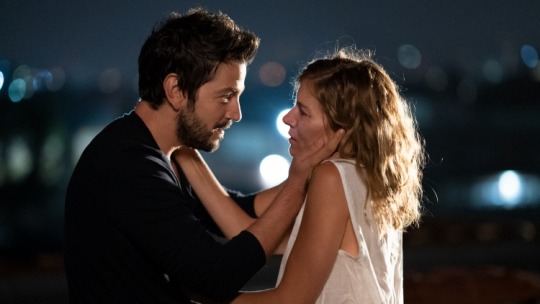
Sienna Miller and Diego Luna star in Tara Miele’s psychological drama WANDER DARKLY (Lionsgate), playing Adrienne and Matteo, a couple who recently had a baby. After they get into a horrible car accident while arguing, they end up revisiting the highs and lows of their relationship as Adrienne believes either she or Matteo or both are dead.
This is a surprisingly stranger film than I expected, delving into the supernatural not quite in the way as something like Wes Craven’s Serpent and the Rainbow or Jacob’s Ladder, but having a few elements in common. Although I haven’t seen Miele’s other films, this one feels very much like something Drake Doremus might have made to the point where I’m not sure I could say I fully understood what was happening from one moment to the next. The film seems to be exploring a couple’s relationship through a horrible tragedy but does in a strange way.
With the emotional performances by the two leads being enhanced by an amazing score by Alex Weston (who also scored The Farewell last year), Wander Darkly is more than anything, a performance piece with a decent script and further proof Miller continues to be one of the most underrated actresses working today. Despite those great performances, the movie’s strange premise might be too metaphysical and intense in execution for everyone to be along for the entire ride. In that sense, I probably liked last week’s Black Bear just slightly more.
I reviewed Steve McQueen’s ALEX WHEATLE (Amazon Prime Video) in last week’s column, and that will hit Amazon Prime this Friday, but I think I’m going to save Education, the last film in his “Small Axe Anthology” for next week’s column. I was also hoping to review Tom Moore and Ross Stewart’s WOLFWALKERS (Apple+) this week, since it premieres on Apple TV+ on Friday, but I just couldn’t get to it. Story of my life.
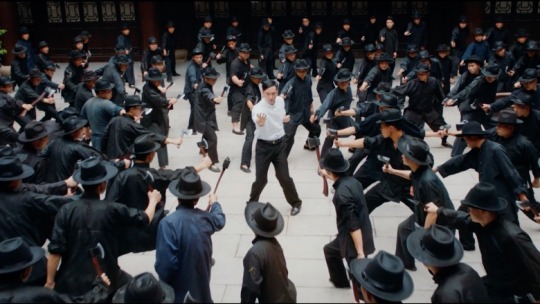
I’m not sure if I could tell you how many of the Ip Man movies I’ve seen over the past 12 or so years, many of which I saw at the New York Asian Film Festival, but Ip Man is indeed back after last year’s Ip Man: The Finale, but that’s because IP MAN: KUNG FU MASTER (Magnet/Magnolia Pictures) is part of the spin-off prologue series starring Dennis (Yu-Hang) To, who looked enough like a younger Donnie Yen to start a whole sub-franchise. This one is directed by Liming Li, who is also directing a Young Ip Man: Crisis Time prequel movie that presumably stars someone younger than both Yen and To. Got it?
Okay, maybe this needs a little more explaining, although the nice thing about Kung Fu Master is that it works perfectly fine as a stand-alone in case you’ve never seen any of the other movies. This one takes place in the ‘40s as Man is a police captain in Foshan, dealing with the ever-present gang known as The Axes. He’s framed for murder when the leader of the gang dies in prison, and his daughter, Miss Qingchuan (Wanliruo Xin), wanting revenge as she takes over the gang. Ip Man has other issues like being disgraced as a police officer and then the arrival of the Japanese army who have their own agenda. Ip Man ends up donning a mask to become the Black Knight to fight crime in another way.
I make no bones about my love of martial arts films when they’re not stupid or hoaky and sadly, the Donnie Yen franchise was getting by last year’s so-called “finale.” Kung Fu Master starts out with an amazing action scene of To fighting off what seems like hundred of axe-wielding gangsters, and it barely lets up, constantly throwing interesting and thoroughly entertaining fights at the viewer. Eventually, there’s a bounty on Ip Man’s head with whoever kills becoming leader of the Axes, but he has other issues, like his wife giving birth to their baby boy, just as the police chief and force shows up to arrest him. Cutting quickly between childbirth and kung fu action is just one of the interesting things Director Li does to make his Ip Man debut.
The resemblance between Dennis To and Donnie Yen is more than just facial as his wushu techniques are equally impressive, and sure, there’s a few more dramatic moments between Ip Man and his wife, but it’s Xin’s Miss Qingchuan who ends up being more of a formidable counter to To in just about every way, including a few fight scenes where axes are flying through the air.
Ip Man Kung Fu Master is fairly short, less than 90 minutes, but it still feels long because it feels like it finds a good ending, and then tacks on an epilogue and then another one. There were times I thought it might end on a cliffhanger to set up Ip Man’s inevitable next movie. The abundance of evil antagonists Ip Man must fight in this one tends to become a bit much, but it’s hard not to be thrilled by the martial arts on display and Li’s terrifically stylish visuals that keeps the movie interesting.
Ip Man Kung Fu Master will be available digitally Friday through a variety of platforms.
Filmmaker Adam Egypt Mortimer, who released Daniel Isn’t Real last year, returns with ARCHENEMY (RLJEfilms), starring Joe Manganiello as Max Fist, who claims to be a hero from another dimension that fell to earth. He ends up spending time with a teen brother and sister, Hamster (Skylan Brooks) and Indigo (Zelee Griggs) who want to clean the streets of the local drug syndicate, led by The Manager (Glenn Howerton from It’s Always Sunny in Philadelphia). It’s a strange and quirky dark superhero movie that includes appearances by the likes of Paul Scheer and Amy Seimetz, and though I ran out of time to review, I do have an interview with Mortimer at Below the Line.
Time to get to some docs, and there are definitely some you’ll want to check out, although I don’t have as much time to write that much about them, and some of them I wasn’t able to watch yet.
Another great doc out of the September festival circuit is Ryan White’s ASSASSINS (Greenwich Entertainment), which follows the assassination of Kim Jong-nam, half-brother to North Korean leader Kim Jon-un in 2017 at a busy airport in Malaysia by two young women. Although the two women had never met before, they were jointly charged with attacking the North Korean ex-pat with a lethal nerve gas called VX but White’s investigation takes him all over South-East Asia trying to get answers to how the two women were tricked into committing the assassination. This is a pretty masterful display of doc filmmaking by White, not just in the sense of the way the story is paced and edited like a good political thriller, but it’s one that keeps the viewer invested even as the last act deals with the trial of the two young women and the bond that forms between them.
I’ll have more about this film over on Below the Line sometime very soon, but it hits theaters and virtual cinema this Friday and then it will be on PVOD on January 15

I saw Seamus Murphy’s doc PJ HARVEY: A DOG CALLED MONEY way back in March when it was supposed to open at New York’s Film Forum, but it’s finally getting a virtual cinema release there. Murphy travelled across Afghanistan, Kosovo and Washington DC with singer/songwriter PJ Harvey as she prepared material for her 2015 album, The Hope Six Million Project, which she produced with Flood and John Parish as an installation at Somerset House where people can walk by and view the recording process. This is an amazing doc that allows you into the process of writing for an amazing recording artist who has given Murphy and the viewer unprecedented access into her creativity. I had fully lost track of Harvey over the years, even though I was a huge fan of hers when she first hit these shores – in fact, I saw her play a concert where Radiohead opened for her… and there as another band (Gallon Drunk) after them! Because of that, I wasn’t familiar with the album, but I just love good music docs, especially ones that take us behind the scenes of a talented artist, and Murphy has created quite a fascinating film even outside the recording studio, whether it’s following Harvey around (narrated by her own poetic observations) but also with commentary by others they encounter. I found the Washington DC segments particularly interesting, since that’s the one place where I’ve spent the most time. An absolutely fantastic doc whether you’re a fan of Harvey’s or not.
Also playing in the Film Forum’s Virtual Cinema this week is Thomas Balmés’ SING ME A SONG, the filmmaker’s second doc set in the Himalayan village of Bhutan that’s been isolated for centuries. He returns to update on Peyangki, the 8-year-old Buddhist monk from his 2014 film Happiness, now a teenager who has fallen under the sway of technology including pop music and smartphone games, as he begins a WeChat romance with a young singer, which makes him consider leaving the monastery.
Also premiering on Netflix this Friday is Jim Stern and Fernando Villena’s doc GIVING VOICE, tying into the streaming premiere of August Wilson’s Ma Rainey’s Black Bottom next week. It follows six student actors auditioning for the August Wilson Monologue Competition, which brings thousands of students from twelve U.S. cities together to perform the Pulitzer Prize winner’s work.
Joshua Faudem’s doc THE LAST SERMON (Gravitas Ventures/Will Kennan) follows the director and Jack Baxter as they follow 14 years after making their 2004 documentary Blues by the Beach, in which the two ended up in a terrorist attack by British Nationals on Mike’s Place, a bar next door to the National Embassy on Tel Aviv. This event sends Baxter and Faudem across Europe to refugee camps and mosques in order to understand the essence of Islam and the truth about the international terrorists that almost killed them.
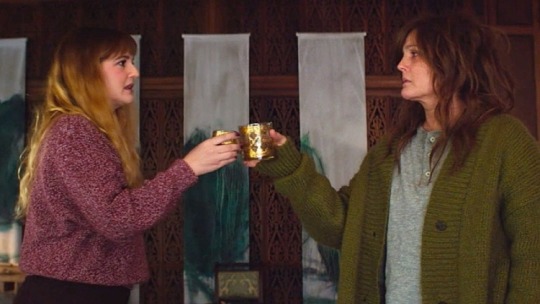
Drew Barrymore plays a dual role in THE STAND-IN (Saban Films), directed by Jamie Babbitt (But I’m a Cheerleader). While under normal circumstances, Wild Mountain Thyme would have been the dog of the week, then this movie came along. Yikes. Barrymore plays Candy Black, a comedy star best known for her pratfalls in bad movies (ala Melissa McCarthy). She also plays Paula, Candy’s much sweeter and almost identical stand-in. Candy is a nightmare to work with and after a fall from grace, she holes herself up in her Long Island Estate for five years, while Paula’s own fortunes falter without having that work. I’m sure you can figure out where it goes from there.
Yes, folks, we have what is now one of the worst iterations of a Tale of Two Cities not made by Barrymore’s frequent co-star Adam Sandler, although there are times where you wonder if she is actually playing a version of Sandler with Candy. Eventually, either Candy or Paula or both decide that Paula can take Candy’s place in her attempt to return to work, but the results are just far worse than The Hottie or the Nottie, as Paula also stands in for Candy on dates with the man she’s fallen in love with online through their love of woodworking. (I didn’t make that up.) You almost always know where it’s going and can’t help but groan when you’re right.
Basically, there’s one Drew that’s glammed-down and the other talking in an annoying wispy voice, so there really isn’t getting away from the awfulness even for a second.The thing is that, like the worst comedies, The Stand In is not funny, and it’s sad to see a decent director like Babbitt being dragged into this one. It’s just a terrible overused premise that’s executed quite poorly. Not only that, but the movie also co-stars TJ Miller, who has fallen so far from grace himself, that it’s shocking to see him in another movie.
Besides guaranteeing Barrymore a double-dose Razzie nomination, The Stand In also leaves her with cow shit on her face, much like her character.
Movies I just didn’t have time to get to this week:
Funny Boy (Array/Netflix) Gunda (NEON) Safety (Disney+) Bee Gees: How Can You Mend a Broken Heart (HBO Max) 40 Years a Prisoner (HBO Docs) Through the Night (Longshot Factory) To the Ends of the Earth (KimStim) Rompan Todo: The History of Rock in Latin America (Netflix) The Wilds (Prime Video) Nasrin (Virgil Films) Finding Ying Yin
By the way, if you read this week’s column and have bothered to read this far down, feel free to drop me some thoughts at Edward dot Douglas at Gmail dot Com or drop me a note or tweet on Twitter. I love hearing from readers … honest!
#TheWeekendWarrior#Movies#Reviews#Minari#TheMidnightSky#LetThemAllTalk#VOD#Streaming#WildMountainThyme#Parallel#TheStandIn#IpManKungFuMaster
0 notes
Text
Dead Kids / Block Z

These two films are by Mikhail Red and I chose these because I wanted to focus on films that are current or up to date and stray away from the adult or rated X genre.

Dead Kids is a relatable film for the young adults as it somehow tackles teen angst and how everyone and everything just seems to go against them. It also portrayed the disparities between the rich and the poor kids and how kids who focus on academics, aren’t going out to clubs and living their best life are considered ‘dead kids.’ How speaking ‘conyo’ and wearing clothes NOT from the department store makes you a superior being and your social status is based on followers and how expensive your shoes are.

Apparently, owning a pair of shoes that cost more than a flagship smartphone makes you feel like you own everyone. Now Mark Sta. Maria (Kelvin Miranda), a struggling poor high school student, grinds and hustles to earn cash to pay for rent, food and other needs; a familiar and relatable character to our working students. Sta. Maria, who at a young age was exposed to the truth that you need to work hard to get anything, anywhere in this life, as opposed to Chuck Santos (Markus Paterson) who has pretty much gotten everything from his parent/s. Santos’ dad being a drug lord and all. Charles Blanco (Vance Larena), a police chief’s son, together with Paolo (Khalil Ramos) and Gideon (Jan Silverio) conspired to abduct Santos in order to exact revenge for being a dick. Blanco having the deeper reasoning behind as he intends to end the Santos family’s villainy; For his father and his family, as his father is a hired protector of Santos’ father’s drug ring potentially through blackmail. Blanco and the gang convinced Sta. Maria to join in, because they needed him and also knew Sta. Maria was in dire need of money so they took advantage of the fact. After all the shenanigans, their plan crashes and burns (they are JUST KIDS so what can we expect?) and they are caught.

The decision Sta. Maria made in the end didn’t make sense to me. His character wasn’t really set up to be someone that could point a gun at someone, especially at police. But then again, he had the most to lose. Blanco wasn’t sent to jail because his father is a corrupt police chief and manipulated the system. Injustice is real in our country and these portrayals are a representation. A reality that many of us are familiar with. Corrupt government officials and policemen get away with most of the shit they do because they are in power. Drug lords exist because protection from the law is offered in exchange for drug money. It is explored in tons of films but this particular film we discern in a young adult perspective; people who are young enough to be free and curious, but old enough to know right from wrong. This film is a mishmash between the Philippine drug war and high school teen drama. It’s kind of refreshing to see such points raised in the theme of a high school drama.

Now Block Z is straight up an abysmal film from the zombie apocalypse niche. This film is no different from the rest within the theme. A virus spreads, raises the dead, then people call them zombies. Then amazingly, somehow the characters immediately know that the zombies die from a shot to the head or decapitation and that if you get bit you turn into one as well.

Out of nowhere, for the lack of ANY backstory, this lady turns into a rabid zombie. Not much creativity and thought process when it comes to the story. Though the film was released in January, the virus theme is timely, with the Coronavirus and all. Then there’s the characters. Of course it cast a well-known couple that has a huge fan base, so that’s one selling point. Man, these characters, I’m not going to even waste time naming them as they are boring and forgettable. So little time is spent with them, you really can’t feel anything if one of them dies. This one dies? I don’t give a hoot. Oh, this one dies as well? May she rest in peace.

See, a lot of characters die but since we weren't really given much connection and background, their deaths are pointless. Having a high death count doesn’t make a story more compelling, especially if it doesn’t serve the story. Storywise, this film is hot garbage. This is mindless entertainment for metaphorical zombies; which the masses seem to enjoy. People just wanna see guns, explosions, zombies, and sex. Although this movie contains no sex scenes, there is one scene where Julia is in a white sando, wet from fire sprinklers, kicking some zombie butt. Another selling point! (this time for the male audience) What is the point of this movie? It has so much loose ends. It could be an okay film considering cinematography and production design, but the half-assed writing dragged it down the zombie pit. Maybe the main frightening thing about Block Z is that it centers around a virus pandemic, like the Coronavirus, and could drive an overthinker into a terrible place.

Yeah, they’re trying to figure out the plot.
I don’t think this film contributes to the common good in any way. It’s not in any way pa-woke, attempting to be deep, and critical. This made me realize why this film was made for Philippine theaters, and why Dead Kids was put on Netflix. It’s all about the target audience and how the movie sells. The people love this type of crap! They don’t wanna go to the movie house then have to ponder on the story right after, they wanna see something cool and be entertained. This is sadly how the Filipinos enjoy movies and the proof is in our Metro Manila Film Festival, with the Vice Ganda and Coco Martin films. None of them are exceptional movies. Jeje comedy, guns, a bit of romance, and a star-studded cast is all you need to sell a blockbuster film in the Philippines. Patok sa takilya! And this film is another addition to the mindless entertainment Filipinos seem to enjoy.
0 notes
Text
New from A Reel of One’s Own by Andrea Thompson: Top Films Of 2019
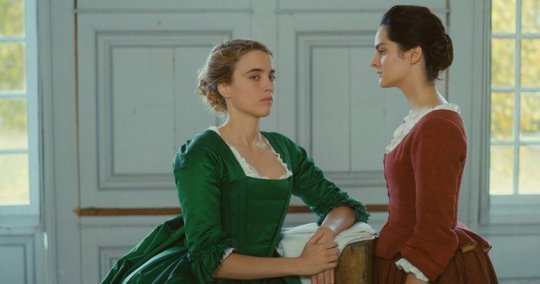
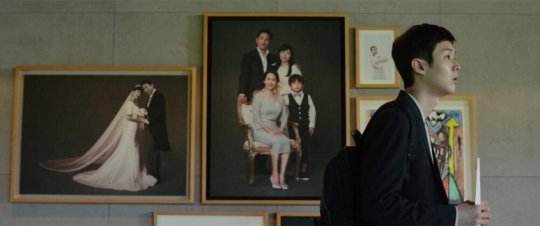
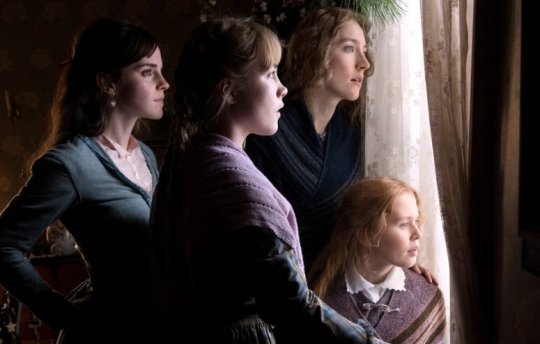

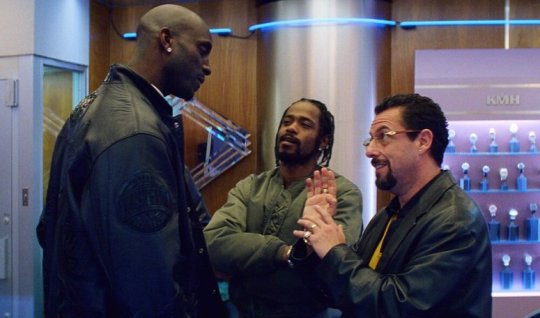
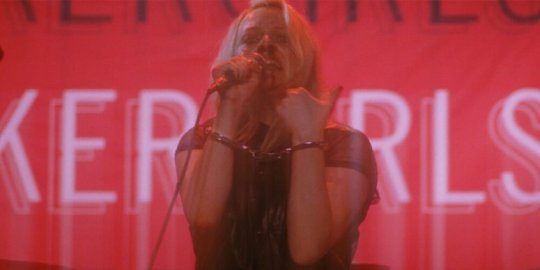
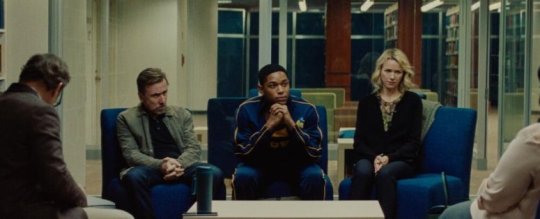

By Andrea Thompson
I state that my list wasn’t too late, 2020 came too early. So here are my top 25 movies of 2019.
25. Avengers: Endgame
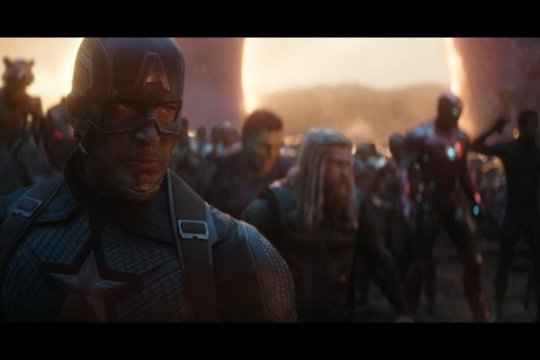
Walt Disney Studios
Fan service doesn’t have to be a bad thing. While “Avengers: Endgame” mostly gave fans what they wanted, it was also a fond farewell to an MCU that had been building for over a decade, one that would be greatly altered by the movie’s end. Making good use of its three hour runtime, “Endgame” takes it time wandering through its own universe in a way that’s both heartfelt and entertaining before getting the gang together in an absolutely jaw-dropping, action-packed climax that had the most jaded moviegoers cheering.
24. Knives Out

Lionsgate
Rian Johnson may have had a complicated year, but “Knives Out” has him on top of his game. Johnson has built a career around toying with audience expectations in the most enjoyable way possible, and he does so yet again in “Knives Out,” giving us a whodunit that seems to reveal who in fact dun it pretty early, only to provide even more layers to peel back. After wealthy patriarch Harlan Thrombey (Christopher Plummer) dies in an apparent suicide, gentleman detective Benoit Blanc (Daniel Craig) is hired to investigate, only to discover some very combative family dynamics, with caregiver and audience surrogate Marta (Ana de Armas) caught in the middle. Anchored by an all-star cast that also includes Jamie Lee Curtis, Michael Shannon, LaKeith Stanfield, Toni Collette, and Chris Evans, Johnson keeps the mystery and the fun coming from start to finish.
23. Monos
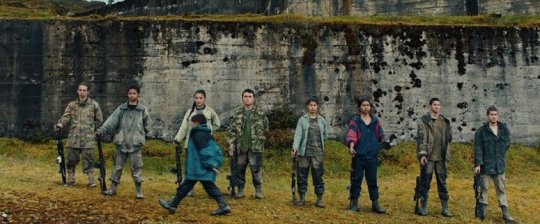
IMDB
Just when you think the eight isolated teenage soldiers in “Monos” are treating the unnamed war they’re fighting in like a neverending slumber party, tragedy strikes, and they become very aware of what the consequences of failure are, and the life or death stakes they’re involved in. As they descend from their remote base in the mountains to the jungles below, their bond is torn and transformed into something far darker, as the beauty of their natural surroundings likewise becomes less of a contrast and more of a complement to humanity’s brutality. Moisés Arias is a standout as the group’s charismatic leader, who likewise leads his charges (and peers) into their own increasingly insular culture, as the bonds of adolescence enable them to surrender more and more of their humanity.
22. Toy Story 4
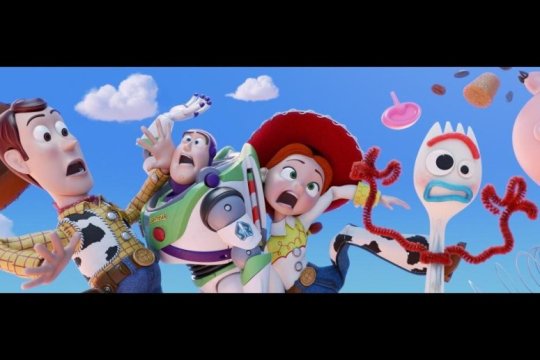
Walt Disney Studios
“Toy Story 4” certainly had no business being good. It was another sequel in a franchise that seemed to wrap everything up neatly in the last film, not only giving Woody (Tom Hanks) and his pals a happy ending, but reassurance that life would go on after their beloved Andy grew up and grew beyond them. So what else was left to stir any kind of conflict interesting enough to prevent one of the most creative and commercially successful film series ever made from devolving into one of the most cynical cash grabs of all time? Thankfully, quite a bit, and it mostly amounts to a case of white male anxiety. Woody had always been sure of his purpose, but when he runs into Bo Peep (Annie Potts), he’s inspired to rethink his life, as his former love has transformed from the demure, delicate toy who stayed behind on adventures to a capable leader who’s embraced life without a child, assists other discarded toys, and plans to see more of the world. It all amounts to a progressive message, that of being who you are right now. Life may change, and your place in it can become frighteningly precarious, but you should never be defined by your past, whether it was scarred by tragedy, or was the source of your happiest moments. Throughout it all, friendships, family, and love can last. To infinity and beyond.
21. Hustlers
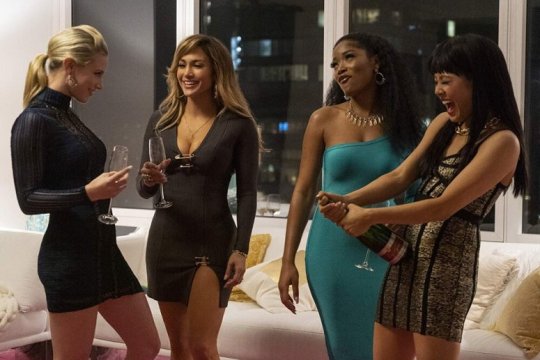
STX Films
��Hustlers” is one of those films that could’ve just been a puritanical cautionary tale about the dangers of girls gone wild. Good thing writer-director Lorene Scafaria saves her anger for the patriarchy rather than the strippers who come up with a plan to turn the tables on their Wall Street clients after the recession hits. Even smarter, Scafaria anchors her story in the friendship between Ramona (Jennifer Lopez in a career-best performance), the originator of the scheme, and Destiny (Constance Wu). Before 2008, they and their co-workers are able to earn more than a good living, but after the financial crisis, their profession becomes less than viable. So they decide to drug wealthy Wall Street men and get them to spend ridiculous amounts of money, which they would then keep for themselves. By giving women who are normally sexualized furniture center stage, Scafaria allows us to share their delight in scamming the scammers, then their fear as their world inevitably unravels, resulting in an insightful, female-centric crime story that mostly unfolds sans judgment.
20. The Last Black Man in San Francisco

A24
Gentrification has been given the movie treatment before, but “The Last Black Man in San Francisco” doesn’t just show the scope of its horrors, it makes you feel them. In this world, it’s perfectly feasible for a little girl to happily skip down the street while men in hazard suits are cleaning up the water, as long as she resides in a neighborhood the rest of San Francisco is determined to leave behind in its mad rush for profit. Jimmie Fails (co-writer Jimmie Fails, who plays a fictionalized version of himself) has one thing to cling to though: a beautiful house in the heart of the city, which was built by his grandfather after he returned home from WWII, and is now occupied by an older white couple. When the couple departs, Jimmie and his friend Mont (Jonathan Majors) decide to move in as squatters in a desperate attempt to reclaim it. A tribute to a city that provokes love and despair in equal measure, “The Last Black Man” is a devastating indictment of an America that claims to reward hard work, yet often condemns those who are born with the most odds to overcome.
19. Ready Or Not

In-laws can be tough, but the clan in “Ready or Not” could probably teach the Lannisters a thing or two. Having grown up in foster care, Grace (Samara Weaving) is eager to bond with her new family, so she happily participates in their tradition of choosing a random game to play on her wedding night. But when she draws the card “Hide and Seek,” she discovers that her new relatives believe that if they are unable to find her and kill her before the night is over, they will lose their vast family fortune. In addition to making the honeymoon awkward, Grace must fight to stay alive in an environment where everyone now regards her as disposable, an acceptable sacrifice to keep the money flowing in. As wickedly funny as it is violently entertaining, “Ready or Not” is a surprisingly heartfelt tribute to humanism and the benefits of being an outsider…especially when insiders have murder on their minds.
18. 1917
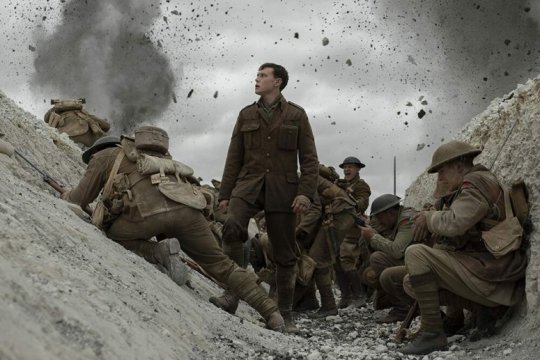
IMDB
Sam Mendes has a reputation for intensity, but his harrowing war drama “1917” brings more suspense and terror than most horror movies. During WWI, two young British soldiers are given a seemingly impossible mission of going behind enemy lines to deliver a message. If they make it through, they’ll not only prevent a disastrous attack, but save quite a few lives, including the brother of one of the soldiers. Shot to give the effect of one continuous take, Mendes turns what might have been a gimmick and uses it to capture the horrors of war, and the humanity that often emerges in spite of it, all in a technically masterful work that showcases a filmmaker at the height of his storytelling abilities.
17. A Beautiful Day in the Neighborhood

Sony Pictures
Given that 2018 saw the release of the critically and commercially successful documentary “Won’t You Be My Neighbor?,” did 2019 really need another film about Fred Rogers? Hold that thought, because “A Beautiful Day in the Neighborhood” makes an enthusiastic case for yes. It’s probably no coincidence that the posters for both films also mention kindness, since Fred Rogers not only advocated it, he seemed to embody it, and not only to the children who were the target audience of his wildly successful show “Mister Rogers’ Neighborhood.” Even if Tom Hanks doesn’t have much of a resemblance to Mr. Rogers, he nevertheless seems to channel him and the values he tirelessly championed to an uncanny degree, enough to make journalist Lloyd Vogel’s (Matthew Rhys) journey from cynic to believer feel fresh rather than tired. Director Marielle Heller also brings the same clear-eyed compassion that made “The Diary of a Teenage Girl” and “Can You Ever Forgive Me?” so heartfelt to this story of a budding friendship between two very different men.
16. Her Smell

Elisabeth Moss has long since proven she’s a force of nature, more recently on the Hulu series “The Handmaid’s Tale.” So what more does she have to prove with the film “Her Smell?” Quite a lot it turns out. If “The Handmaid’s Tale” is a showcase for Moss’s powers of restrained passion, then “Her Smell” allows her to tear up the screen like a tornado, destroying all the mere mortals unfortunate enough to become swept into her path as the self-destructive punk rocker Becky Something. As Becky’s mood shifts with the rapidity of a deranged pinball, she can’t seem to latch on to anything resembling stability, despite the efforts of her bandmates, collaborators, and ex-husband to steer her towards a healthier direction. Or just anywhere other than the rock bottom she seems determined to hit with full force. If Becky’s downward spiral is difficult to watch, it’s even harder to look away, as Moss infuses her with a charismatic talent that makes the inescapable tragedy feel Shakespearean in scope.
15. Varda By Agnes

If the documentary “Varda By Agnès” is difficult to define, it’s because the late great filmmaker Agnès Varda herself defies anything resembling easy categorization. Like her other films, the premise of “Varda By Agnès” is deceptively simple, yet soon reveals layers of complexity which unfold throughout, as Varda looks back on her life and career while articulating her style of filmmaking. However, the doc is far more than a retrospective, and far less predictable, at one moment reminiscent of a casual chat with an old friend, the next an imaginative journey wherein a great artist instructs devoted cinephiles and neophytes alike on how she not only viewed, but interpreted the world. It’s a fitting end to a decades-long career and life, both of which 90-year-old Varda defined on her own terms to the end.
14. The Farewell
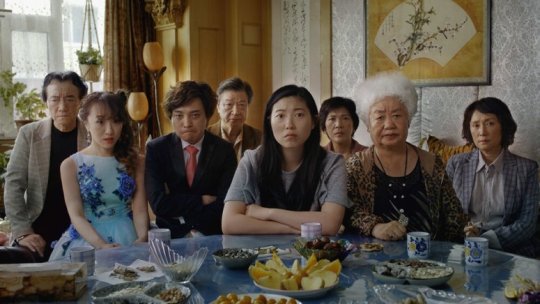
IMDB
A movie with a character who happens to be a terminally ill grandmother is a tough sell for a comedy. But the matriarch who receives a fatal cancer diagnosis isn’t just a side character in “The Farewell,” she’s the central plot point. After struggling New Yorker Billi’s (Awkwafina) beloved Nai Nai (Shuzhen Zhao) is diagnosed, her family opt to keep her illness a secret and decide to throw a fake wedding to provide an excuse for them all to gather in China and celebrate Nai Nai one last time. And it’s…pretty funny, with not just the expected dark humor, but a wide spectrum of hilarity abounding alongside the touching moments of grief. Based in part on writer-director Lulu Wang’s own experiences, “The Farewell” is apt to make you laugh and cry not just in equal measure, but simultaneously.
13. Little Woods

IMDB
You can never have too much of Tessa Thompson, and “Little Woods” allows her to fully immerse herself into a role and world where a single wrong step could tear through a life with the force of a tornado. And she downright mesmerizes as Ollie, who finds herself in tight circumstances with a mere eight days left on her probation and the hope of a new life. Or rather, her somewhat estranged sister Deb (Lily James) does after their mother dies, and Deb and her son find themselves on the verge of homelessness and destitution. To help her family, Ollie decides to reenter the world of prescription drug smuggling, a dangerous but profitable business in their bleak rural North Dakota town. Remarkably, this is director Nia DaCosta’s feature debut, and the fact that she gives us a brilliantly realized modern Western with a feminist twist, where a drug run to Canada also doubles as an attempt to receive a safe and low-cost abortion, is hopefully indicative of much more to come. Thankfully, there are already hopeful signs of just that.
12. Dolemite is my Name

IMDB
Just when you think Eddie Murphy might be teetering on the edge of irrelevance, he reminds you why he’s a pop culture phenomenon by tearing up the screen as Blaxploitation legend Rudy Ray Moore, who became famous in the 70s for his portrayal of alter ego Dolemite in his film and stand-up career. Even if we’re aware of how this is going to end, with Moore investing – and risking – everything he’s built to make a film based on his Dolemite character, Murphy is astounding, radiating joy as he brings his larger-than-life energy and charisma to Moore, who was similarly magnetic. And it’s not just Moore, but the people he’s gathered around him who succeed as well, many of whom were just as underused by the mainstream entertainment industry. As they all revel in building and profiting off a film made on their own terms, it’s the kind of tender, inspirational tribute that earns every bit of its charm and intensity.
11. Queen & Slim
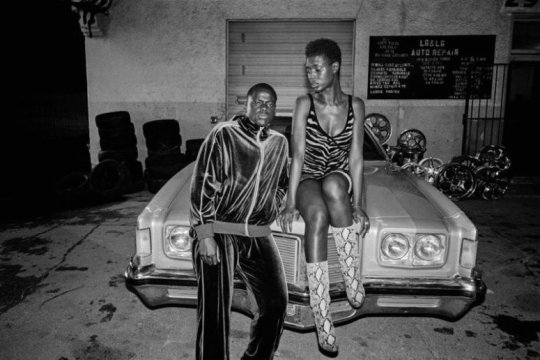
Universal Pictures
“Queen & Slim” kicks off with its title characters on a date that is only remarkable for its lack of spark, but things get heated in the worst way after a police offer pulls them over for a minor issue, and things escalate, with Queen (Jodie Turner-Smith) getting shot and Slim (Daniel Kaluuya) shooting the officer in self defense. The two then go on the run together, with their bond and their relationship blossoming as they drive south through a lush vision of Black Americana. That they both come off as deeply human while remaining symbolic of the tragic human cost of racism seems due in large part to the near symbiotic creative melding of director Melina Matsoukas, who also directed Beyonce’s “Lemonade,” and writer Lena Waithe, the creator of the series “The Chi” and who also wrote the acclaimed “Master of None” episode “Thanksgiving.” Their story is tragic, but it is also full of beauty and humor as Queen and Slim dare to hope for something better, even as they know the odds against such a thing are overwhelmingly stacked against them.
10. Fast Color

Lionsgate
It’s said that not all heroes wear capes, and certainly none of the women with superhuman abilities do in “Fast Color.” This criminally underseen gem has many of the beats, but almost none of the familiar tropes of typical superhero fare. Gugu Mbatha-Raw plays a woman named Ruth, a fugitive on the run from authorities attempting to harness her abilities, and most critically, from herself, since those abilities have become a destructive force she’s unable to control. In this bleak dystopian future which is rapidly running low on resources, the key to Ruth’s future may just lie in the home she fled years ago, where her estranged mother (Lorraine Toussaint) and daughter (Saniyya Sidney) embody a past she tried to escape, and a more hopeful future they may be able to bring to fruition.
9. The Souvenir
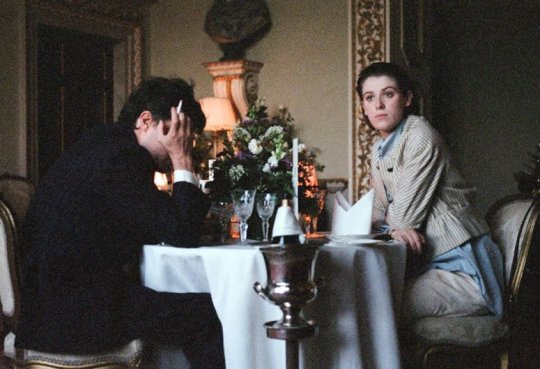
IMDB
Joanna Hogg’s semi-autographical film “The Souvenir” is like a deceptively calm pond which conceals a raging torrent just beneath the surface. Honor Swinton Byrne, the woman responsible for the storm that’s eventually unleashed, may still be constantly referred to as Tilda Swinton’s daughter, but this film suggests that won’t be the case for long. Her performance as Julie, a young film student in the 80s whose dreams are nearly derailed by her involvement with an older man who is also a heroin addict, is the kind of on-screen arrival that the term breakout role was made for. With part two arriving next year, it’s hard to imagine how Hogg or Byrne will match the kind of urgency they brought to this film, but this creative pairing – which feels like a match made in cinematic heaven – could feasibly pull it off.
8. One Child Nation

One Child Nation
Director Nanfu Wang grew up in a time when China’s infamous one-child policy was at its height, with every facet of society extolling the virtues of having a smaller family…and the consequences of disobedience. After Wang had a son, she decided to investigate the policy she’d never given much thought to and its impact. When she uncovered was a complex and horrific hidden history of forced abortions, child abandonment, and infants who were literally torn from their arms of their families and given to American couples for adoption, who were tragically unaware that they were abetting kidnapping. Wang fearlessly confronts her own complicity and that of her family and community as she delves into the past, and how China is attempting to erase it from its future.
7. Uncut Gems

A24
If we’re our own worst enemies, then Adam Sandler’s New York City jeweler Howard Ratner will never have a worse one. A gambling addict who’s always in search of that next big score, his need for his drug of choice has wreaked havoc on his personal and professional life. He’s managed to get his hands on the titular gem that may finally change his luck…if he can somehow hold off on his on self-sabotaging impulses. Anchored by not only a career-best performance by Sandler, but a breakout one by Julia Fox as Howard’s mistress, the Safdie brothers immerse us into Howard’s world, then his mindset as he unravels, all the while clinging to the belief in that one big break that could still change everything.
6. Bedlam

Sundance Institute
In exploring the history of mental illness in America, director Kenneth Paul Rosenberg explores his own family, and how they reacted to his sister’s mental health struggles, then expands his scope into the personal and political ramifications of how we decide to treat a hidden social crisis of our time, one that is steadily worsening. As he travels to jails, Ers, and homeless camps, Rosenberg grounds his documentary with subjects who permit him a staggering amount of access to the highs and lows of their journeys to stability, and more often, how ill-equipped the system is to assist them. It will leave you emotionally gutted, but also with a much-needed greater understanding of a large population who are in desperate need of both compassion and assistance.
5. Luce

IMDB
No one escapes unscathed in “Luce,” including us, as director Julius Onah slowly but surely tightens his grip on our collective throats, forcing us to realize how even the most privileged among us are caught up in a system that ultimately demeans us all, with little doubt as to just who bears the brunt of the consequences. The titular Luce (Kelvin Harrison Jr.) first seems to have it all and more. Adopted as a child from war-torn African county by suburban white couple Amy (Naomi Watts) and Peter (Tim Roth), Luce is a star athlete, a top student, and popular with students and teachers alike. It’s only when his teacher Harriet (Octavia Spencer) alerts his parents to a potentially disturbing essay by Luce that the cracks in the facade start to show, and Amy realizes just how little she may know the son she’s loved and raised, and perhaps also tokenized. Harrison’s masterful performance is equal parts chilling and heartbreaking as a young man who may be capable of great and terrible things. Just what will Luce become? The film has no answer.
4. Little Women

Sony Pictures
Greta Gerwig didn’t just write and direct Louisa May Alcott’s beloved 1868 novel, she brought it to life, with each of the four March sisters getting their due. Yes, even Amy. One of the most brilliant decisions Gerwig makes is to bring the book to the big screen in a nonlinear fashion, juxtaposing scenes from the sisters’ idyllic childhood with their darker adulthood. While the Civil War rages, depriving them of their father, the March family becomes a matriarchal worldutopia, wherein Meg (Emma Watson), Jo (Saoirse Ronan), Beth (Eliza Scanlen), and Amy (Florence Pugh) are free to explore their hopes and ambitions, guided by their beloved Marmee (Laura Dern), and befriended by their wealthy neighbor Laurie (Timothée Chalamet). As each sister struggles to find her way, Gerwig takes care to ensure that their lives not only feel familiar, but relevant as each wrestles with how to balance their dreams with the narrow expectations imposed on them.
3. Atlantics
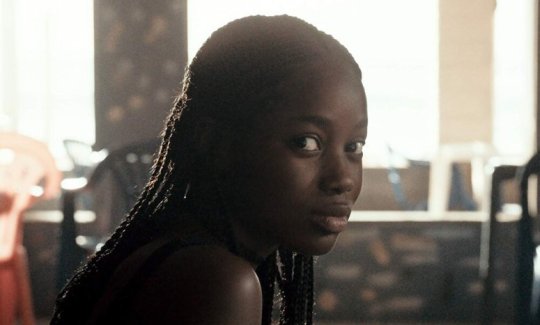
IMDB
Mati Diop made history in more ways than one with her feature debut “Atlantics.” She was the first black woman to have a film in the main competition at Cannes, where “Atlantics” won the Grand Prix. The film more than lives up to the hype, with a touching love story that is also part supernatural fable and devastating indictment of modern exploitation and rampant poverty. Ada (Mama Bineta Sane) lives in a Senegalese suburb, and is promised to a wealthy man. But she is in love with Souleiman (Traore), a construction worker on a futuristic tower which is due to open soon. Souleiman and his co-workers haven’t been paid for their labor in months, so they decide to take their chances and depart by sea in search of something better. As Ada waits for news of him as she prepares to marry, she gradually learns that the spirits of Souleiman and the other young men are possessing the bodies of the living and demanding justice. As Ada slowly comes to accept the truth and take control of her own life and body (she’s forced to take a virginity test), Diop infuses her story with a beauty that never belies its sense of urgency for compassion in a world that can often seem short on it.
2. Parasite

IMDB
The word parasite conjures up images of a creature which takes from a victimized host without a thought of giving or the consequences thereof, but as Bong Joon-ho’s latest slice of brilliance unfolds, it’s unclear just whom is feeding on whom. But in the vicious capitalistic times we’ve arrived in, perhaps everyone is feeding on everyone, whether they know it or not. In the story of the impoverished Kim family, who manage to scam their way into various positions of employment with the wealthy Park family, Bong Joon-ho serves up a scathing indictment of the inequality which twists haves and have-nots alike. As one jaw-dropping development after another threatens to deprive the Kims of their newfound prosperity, both families suffer the horrific consequences. And even if you are able to free yourself from the dark obsession inherent in wanting a good life which remains tantalizingly out of reach, the vicious cycle, one borne out of a need that will never be quenched, continues.
1. Portrait of a Lady on Fire

IMDB
If Céline Sciamma had just wrote and directed a romance between two women who find the kind of love that leaves the screen burning from their mutual passion, “Portrait of a Lady on Fire” would still have been one of the best films of the year. But Sciamma does so much more, making the case for an entire history that has mostly been unacknowledged by the art world. Not just of the female artists who managed to create in spite of the obstacles, but the lives of women in general, who are often not considered worthwhile subjects. (Times have sure changed, huh?) “Portrait” may take place in 18th century France, but its insights into the dynamics between artist and muse, how art is created, and how those who are silenced manage to find a voice, feels very much needed in our present moment.
from A Reel Of One’s Own https://ift.tt/2RcXbMK via IFTTT
from WordPress https://ift.tt/35SBg2A via IFTTT
1 note
·
View note
Text
10 Japanese Movie Recommendation Sad For You
http://dailygirl.co/?p=295
Are you currently feeling upset? Are feeling upset or not, sometimes we may want to watch movies that can thrill the heart. No wonder if many films with a sad story that can make the audience flood tears. Not inferior to Korean dramas, some Japanese films are also successful to make the audience touched you know. Japan became one of Asia's most successful countries producing quality films and dramas.
The Sad Japanese Film Recommendations That Make Tears Flood
Do not just watch Japanese horror movies, but occasionally you can watch sad Japanese movies. Many Japanese-made films are able to make the audience appreciate the story of the film. Well, here is a recommendation of Japanese film that is likely to make you shed tears while watching it.
1. Hotaru no Haka or Grave of The Fireflies
The first movie you can watch is Hotaru no Haka or Grave of The Fireflies. The film was adopted from a novel by Akiyuki Nosaka. But before the film was made, it turns out this novel was appointed an animated film first. The animated film was produced by Studio Ghibli in 1988 ago. It was recently promoted to live-action films in 2005 and 2008. The film was backgrounded in the final days of World War 2. Telling about the two brothers Seitadan Setsuko who must face the rigors of post-war life. They must pass through these difficult times without parents.
2. Tada, Kimi o Aishiteru or Heavenly Forest
The film, produced in 2006, tells the story of a character named Makoto who just entered college. Apparently Makoto including people who are quite difficult to adapt to new environments, especially on new people. But this time Makoto felt different things. He is interested in seeing a girl named Shizuru who has looks and behaviors like children. Once close to Makoto, Shizuru is finally interested in photography. But unexpectedly, Makoto even more interested in a girl named Miyuki. Knowing this, Shizuru also promised Makoto that one day he will grow into a real adult girl. The incident in this film contains many sad scenes that drain the tears.
3. Sekai no Chuusin de, Ai o Sakebu (Crying Out Love in The Center of The World)
In international, the film is titled Crying Out Love in The Center of The World. The film, released in 2004, tells the story of Matsumoto Sakutaro's fiancé who discovered an old cassette, the production of 1986. The cassette contains the final diary of Hirose Aki, who is the first lover of Sakutaro. Former lover Sakutaro died of leukemia. This film explains how Sakutaro's past is in his childhood city. It's been sad to hear it right?
4. Tenkousei: Sayonara Anata or Switching: Goodbye Me
The film that was released in 2007 was lifted from a novel by Yamanaka Hisashi. Not only that, this film is a remake of the previous film that was released in 1982 with the title "I Are You, You Are Me". The story was quite interesting, which is about Kazumi and Kazuo who suddenly switched bodies when accidentally plunged into the pool. At the beginning of the movie you will be presented with fun scenes. But there are some sad scenes that will make you incubate the tears.
5. Kobe Shinbun no Nanokakan
Kobe Shinbun no Nanokakan is a film that tells about the Kobe Earthquake on January 17, 1995. This film is made based on the true story of a photographer Kobe Shinbun newspaper named Tomohiko Matsuyama. You can see a lot of horrible and horrific events in the movie. Especially when Matsuyama has a promise, which is photographing a friend.
6. Aishiteru Kaiyo
Aishiteru Kaiyo is a drama that is able to make people touched because it is about a 10 year old elementary school boy who was arrested by police for killing a kindergarten child. In this film will be told everyday stories while languishing in prison, even until he can reveal the whole incident. Not only that, there will be a story of the boy's parents struggle that face the scorn of people around. Then how his parents are responsible to the families of the victims. This film mampy open the mind and hearts of the audience to see the problem from various angles that exist.
7. 1 Liter of Tears Serial
This series is adapted from a true story of an 18 year old high school teen named Aya Kito who suffers from Spinocerebellar Degeneration disease. This disease was able to paralyze the nerves in Aya's body, so he could not write, walk, and talk. Persistence and struggle of this girl can touch the hearts of the audience, even the inspiration of many people as well. No wonder this series became a favorite drama, then aired in several Asian countries, such as Indonesia, Singapore, Thailand, Malaysia, Philippines, Vietnam, until HongKong. Even Indonesia itself adapted the story of this drama into a series of Nayla Diary that aired in 2006 ago on national television station.
8. Koizora
In international, Koizora is named Sky of Love. Koizora is produced into movie and drama series. It is about a pair of high school kids named Mika and Hiro who live a winding romance. Then suddenly Hiro disappears without news after asking Mika to end their relationship. It was not known to Mika that it turned out that Hiro had a deadly disease, so he was deliberately away from Mika. The movie and drama series are made into two versions with different actors.
9. Taiyou no uta
The film tells of a character named Taiyou no uta who has a love of music. His love is helping him in the fight against skin cancer that he suffered. Although he can not enjoy the days in the sun as normal as most people in general. But he never despaired. Every night he sings on the sidewalk to pursue his dream of becoming a singer. Finally he also met with Koji. But the problem occurs when love in their anatar grows. Kaoru also remained concealed about his illness. You can see this movie in two versions.
10. Kamisama Mou Sukoshi Dake
The popular romantic drama of the 1990s was able to drain the tears of its audience. The film, starring Takeshi Kaneshior and Kyoko Fukada, is about a girl named Masaki Kano who suffered from HIV disease, after he sold himself to earn money. He needed money to watch the concert of a famous composer named Keigo Ishikawa. But after the concert, Keigo sees Masaki approaching his car. Finally Masaki was taken overnight to Ishikawa's apartment. Masaki's HIV disease also contracted to Keigo. Both are also doing joint struggle to face the deadly disease.
That was some of the recommendations of Japanese sad movies that you can watch. Judging from the above reviews, the stories are quite sad indeed? But the sad story offered is not merely about the love story. But more about a struggle in life. So how, are you interested in watching which one? Happy watching!
3 notes
·
View notes
Text
Innovative Artists Find Ways to Dance Around China's Censorship

But artists like the scene's writer-director Wang Chong operate in what might be considered China's version of "off-off-Broadway", small, often impromptu, avant-garde performances in which independent show-runners walk a razor-thin line between censorship and artistic freedom. "A rebellious spirit is very dangerous. If an artist is in trouble in China everybody will cut connections, cooperation and conversation with them," Wang said of the risks. Wang spoke to AFP on the sidelines of the recent 7th annual Wuzhen Theatre Festival in the eponymous ancient canal town near Shanghai. Artists from the Ikarus troupe perform at the Wuzhen Theatre Festival Wuzhen's government promotes the town as an arts center, which affords directors a sliver more creative leeway than elsewhere. But even in Wuzhen, Wang, a tall and lanky 37-year-old, employs what he calls "tricks" to avoid trouble from a government that is pushing "red" theater extolling the one-party Communist state. Independent directors today often perform pop-up style, in art galleries, museums, or coffee shops, avoiding proper theater venues, which require pre-approval of scripts and are frequented by government officials monitoring for sensitive content. "If you stick to giving a voice to deep social issues, you will finally figure out a way around the rules," Wang added. Artists dressed as fairies perform along a street in Wuzhen where the government promotes the town as an arts center Glass Ceiling Many theaters in China host modern Western-style dramas, but much stage fare still consists of Communist paeons or re-tellings of ancient tales. But Wang and his peers push the envelope with avant-garde productions that skirt the censor's red line. His latest -- a thinly veiled swipe at China's surveillance state -- was performed outdoors in Wuzhen by four randomly selected audience members who received their lines and prompts via headphones. The founder of 11-year-old Beijing-based performance group Theatre du Reve Experimental, Wang has had plays shut down before. "Mr. Big", a production centering on early 20th-century dissident writer Lu Xun that touched on sensitive issues, opened in theaters in 2016, but was later abruptly closed. Wang likened it to the death of a child and indicative of what he calls a "glass ceiling" for sensitive content. Another innovative playwright, Wang Boxin, the 34-year-old founder of a Shanghai-based theater troupe, uses satire and dark humor in productions that shine a light on what he considers contemporary China's declining moral values. His latest, which debuted on Wuzhen's centuries-old plazas, was inspired by the police detention this year of a young Chinese cartoonist on vague accusations of "insulting Chinese people" with satirical cartoons depicting them as pig-headed gluttons. Wang's darkly comic piece was performed by actors wearing animal heads. "As long as you don't sell tickets, you won't be asked for qualifications and can keep your artistic freedom," said Wang, who formed his self-funded troupe this year. Artists perform during the 7th annual Wuzhen Theatre Festival in Wuzhen in Zhejiang province, two hours from Shanghai Guerrilla Style Self-taught theater director Huang Baosheng also stages his plays, which revolve around the pressures faced by Chinese young people, in what he calls "guerrilla" style - in friends' homes, coffee shops, even an underground parking lot. But that's due more to financing than politics. "Money is my biggest trouble, a drag on my creativity," said Huang, 25, who co-founded a troupe three years ago in the nearby city of Hangzhou, supporting it with his earnings as a copy writer at an internet company. His lack of formal theater training makes government or private funding elusive, while others say edgy content also repels sponsors. Still, growing numbers of Chinese independent impresarios are emerging to find increasing interest from young Chinese, Huang said. But censorship hovers overhead, said Wang Chong. "(Chinese authorities) want theater to become an industry like Broadway, to make money like movies do and contribute to national GDP," he said, but they also want it "pure and strictly controllable". Wang, who regularly stages his edgier performances overseas, will perform a new one-man play in Australia next year starring himself. The theme: censorship. "It's my long-term dream that China's theater censorship system will collapse one day. If so, the (forthcoming) play will have accomplished its mission." Read the full article
0 notes
Text
APNA TIME AAYEGA- When waiting for roles seems never ending.
From getting your first real chance to act in front of the camera, when you & your friends start thinking that you’ve arrived as a star, to maintaining focus when work dries up, Nitin Chatterjee offers survival tips to actors in the toughest of industries.

A lot of acting gurus tell you that acting is all about feeling the character and being in the moment. But according to me, if you can’t get acting jobs, its not about anything at all. You can be a working actor in the real sense of the word only if someone out there is not just prepared to watch your acting but also pay you for it. To survive emotionally and professionally in a city like Mumbai, you’ve got to earn a living & nourish your caged self-esteem.
What are your chances?
Renowned film producer & director Mahesh Bhatt in one of his older interviews for a film magazine had once remarked that lakhs of people come to Mumbai everyday to become actors but only a tiny percentage are able to find some work and even a tinier percentage from them become successful in their acting career.
The statistics in Mumbai are horrifying, with nearly 88-90% actors being out of work at any given time. What’s interesting to note however is that only these 10-12% actors tend to work continuously and seen on screen regularly. The rest keep on giving auditions in the hope of grabbing a good role one day.
The idea therefore is to be in the top 10% category of working actors. That BIG BREAK is very rare to happen and is as good as someone winning the lottery. What no hard working actor would like to find himself doing is sitting in a dingy local bar in Mumbai having a drink in frustration & singing “APNA TIME AAYEGA”

Acting schools & Drama institutes
While it is true that people do make it without going to a drama institute, it is also true that many actors study theatre & drama before setting their foot in the industry. There are reputed drama institutes like NSD (National School of Drama) & FTII (Film & Television Institute of India) where various courses in media & entertainment are offered. Study from scratch as to how movies are made & trust me you’ll feel better equipped to handle unemployment in this industry. A multi skilled actor will mostly find something or the other to do. He won’t sit idle for long.
Building contacts
This entertainment business is fueled by whom you know in the industry. Therefore your most likely source of employment is meeting possible employers like producers, casting directors, casting assistants and coordinators. In between jobs, keep working on sharpening your acting skills. If there’s something going on in a theatre festival, film festival or an acting workshop, take it- you never know who might be watching or participating in it. I used to attend every possible festivals myself like Kala Ghoda Arts festival, Prithvi theatre festival, Mumbai International Film festivals to name a few. Being a part of these festivals added a lot of value in my life. I made some good industry contacts too on the side. I remember meeting an assistant director in movies at this film festival, who called me for an audition 6 months later when he was able to offer me paid work.
Prithvi Theatre at Juhu is a great place to keep yourself busy with. If you’re lucky enough to join a drama company, you’ll perhaps get to learn dizzying range of acting techniques, voice training, movement training, audition techniques: plus you never know whom you’ll end up meeting in the infamous Prithvi Cafe. I have personally met Makrand Deshpande, Raza Murad, Juhi Babbar, Sudhir Pandey, Saif Ali Khan, Kirron Kher, Rajat Bedi, Deepika Padukone, Rajesh Puri, Sharat Saxena, Tiku Talsania and many more known industry professionals there. All I am trying to say is, stay busy. Inactivity is the biggest enemy of both your acting skills & your drive to find work.

Be persistent & keep going
The difference between aspiring (I hate using the word struggling) actors & working actors isn’t talent as many would like to believe. I’ve come across some really good aspiring and bizarre working actors, but those working actors are prepared to cope with the nightmare of not knowing where the next pay cheque is coming from. The state of being financially broke or “kadki” undermines the most burning enthusiasm, so do anything within reason to keep some money coming in. Plenty of actors I know work part-time in international BPO’s or call centers as they are called in India. They are located in huge numbers at Mindspace-Malad & Hiranandani Gardens-Powai. Some actors are working as assistant directors to learn the art of film making while pursuing acting. Of late there’s been a surge in casting agencies and I’ve met many young aspiring actors working as casting assistants and interns in them. They don’t get paid much there but as the wise saying goes, “something is better than nothing.” It more or less keeps you in the swim with regards to what project is happening and which production house is making it.
Any work or job that allows you sometime to hit auditions you were called for is worth its weight in gold. Jobs like gym instructor, data entry, receptionist, photographer etc has helped actors work part time during the day and appear for auditions between 6 pm and 8 pm.
In between all this, keep networking. Get busy finding out which production house is coming up with a new show, who is directing what show, where is casting taking place & what are the requirements. If you get to find out all this you’ll be in a better position to target your portfolio at the right places.
Make time get some exercise, indulge in swimming, yoga. Take a dance class or zumba class, learn to play a new musical instrument, enroll in some acting workshop with a reputed company, go watch some good plays.There are a lot of things you could do with your free time when you’re not busy acting.
Don’t be lazy for your auditions
Always be prepared for your auditions & avoid procrastination. Every time you get a call from a casting agency like NITIN Chatterjee Casting Company to audition for a particular project, spring in action & hit that audition without fail. Audition is your only chance to showcase your range as an actor. Prepare yourself well & do not be late at any cost. There’s no point reaching an audition after it is closed. Leave early from home if you know you’ll get stuck in traffic. Casting team isn’t interested to know why you were late. Remember, an opportunity gone is gone & there’s nothing you can do about it.
Final Thought
The old maxim still holds true: Where there’s a will, there’s a way. Do not simply lock yourself in your room and expect that “one call” for a role which would change your destiny. Instead don’t bother much about it, put your head down, keep working on your craft, keep hitting auditions, keep upgrading your skills, keep networking and stay in a positive frame of mind. Keep an eye on your destination, if one path is blocked, take another path but don’t change your destination. Its only then you’ll be able to lead a fulfilled & purposeful life as an artist.
Best wishes!
0 notes
Text









Breath out. I don’t feel like it. I have better stuff I want to put my attention to. Perfect selfie 🤳🏾. Ugh 😑, I have to follow Laura.
So I am unscathed. I was in a room full of boys and I was able to hold myself together as they decided my fate. Dad actually wielded the great power. He basically dictated what was going to happen to me. The judge 👨🏻⚖️ made the call official and that’s weighty. He was a scary guy. I mean my public defender wasn’t lightweight. He was a cop 🚓 who made his way through law school. He was very good. He was being a police to me. I loved 💕 it. I wasn’t putting a defense. I was argumentative. I tried to hold my tongue 😛 as much as I can. I am tough as leather as well. My parents paid a fine on credit 🤦🏼♀️and I didn’t get jail time. It was tensed. I shed a tear for me 😢 , for my frustration, for my world 🌍 seeming uncontrolled and out of my rudder to steer and for being so angry 😡. You see when people put their anger on others my Dad and I learned that we have to control our temper. It’s overwhelming and consuming. We are both aware we are hot 🥵 blooded. I sort of have my maternal grandmother 👵🏻 in me. I am a little mild mannered but when I flip a jack, my gawd. I burst out not livid shaking. I grabbed literature on court stuff. It interests me. I wanted to really say something if I can like volunteer. I am always running into something. Jamesicle 🐈 is asking to let out. One sec ☝🏾 .
As a result of the call, my parents are deciding to get me to an exit point 🚪 . They are sending me back to the Philippines 🇵🇭. Can I get a fancy place? They are giving me allowance. My Mom wants me to find a job there. I am like, “What kind of job can I get there? I am only an undergraduate?” Being a master of none because I am a messy gal up there 🤔, I am not really sure what I am going to do. I already told my Dad, it’s ominous. It’s bound to go sideways and worst for me. I mean how bad can my life get. My skin aging fast 💨 with air pollution, the traffic, the incompetent barbershop 💈 talk. Vie stop 🛑 being administrative and be more see the other person. Ok. I have an idea 💡. Since I like being in school 🏫, when it happens I would like to spend time in school. Can I be like a professor? I would like to spend time in the University. I have a place in mind. When we applied for our multiple visa to see my paternal grandpop befor he passed away, there were many universities that we passed by. I loved ❤️ seeing the large buildings. I lived in a snug town in Muntinlupa. Wait, can I use Bel-Air? Vie, is it really wise to live ritzy. I mean crookery galore. Why don’t you stay at powerbase Alabang. IDK 😐. Perhaps I should start reading the Philippine newspaper 🗞. Duterte can fool everyone but I am not buying the insanity of killing people without due process. I understand that government must do for the republic to survive. Are you leading for you or for the people? My Mom was like, “Work for National Institute of Agriculture?” Ugh 😑, I missed my maternal grandad 👴🏻 . I never got to see grandparents before they died. I am choked up in tears 😭 as we speak. See how much I can hold inside me and still go on. Perhaps, the first thing I should do is to pay respects to the grandparents who thought 💭 of me all the time and died without having the chance to see me. I talked to my grandpa and I showed off my Spanish. I send him my achievements and most what he loves 💗 the most. Goods from the United States 🇺🇸 . His sister worked in the United States Base married a Navy. She petition my grandparents. They didn’t leave 🖊. Living in the US, my parents arranged for their interviews multiple times but they were never approved. I missed them. As much as I was working on what I wanted to in life so focused on that that I didn’t bother to entertain what it is that I missed, I now feel the loss of what I had missed. I didn’t get to spend those times with my grandparents whom I get to see every vacation. I spend summers on the mountain ranges far from civilization really. I learned a different way of speaking. I felt loved 💕 and welcomed. I was teased a lot. But I never really shriveled. Ok, let’s stop 🛑 the drama. There are many things I can do. My Mom told me to plan. I have no idea 💡 really. I just want to bunker up in a lot of books 📚 and particularly learn about the many cultures within the islands 🌴 . All I know of life along time ago is watching movies 🎥 every Sunday, shopping 🛍 in Town Center and doing whatever you want weekends.
I ate in the car 🚙 this morning. I don’t remember unless I sit down to think 💭 hard and long about it if I was in a hurry getting ready. I am not sure 🤔. I did my regular Sunday schedule 📆 and I had to go to the library 📚 . I missed Kelli’s class 💃🏼 . It’s like latin street dance. I loved 💗 it. I was running without fit Americano ☕️. I also was out of protein powder. I saw the world 🌍 differently. I think 🤔 I am suppose to talk about drug dependency. I run on caffeine drip. I know my body cycle. I will have food coma 🥘 unless I discovered I am in the bustling gym 🏃🏼♀️ 💪🏾 . I have been taking away my espresso shots. Guess what? I am still functional. My reaction is slow. I am processing fine. I am just not spitfire. But it really made me ask whether I am now using coffee to give me that edge or I need that jolt ⚡️ to start my day. I feel that the answer might be varied based on how reventado I am. I went to HipHop 🕴🏻. I found it short. But Melissa was a great teacher as usual. They all are. Everybody who works at Lifetime is like top notch. I am telling you. They know what they are doing. She has asthma. She has to limit the fun 🎊 but it was fantastic as ever. Why don’t we do the “Look 👀 don’t touch don’t touch song 🎶 any more?” What was I like in her class? I enjoyed it for sure. I have been tripping on my feet 🦶🏻 a lot. IDKW 😐 . I think 💭 I know my dance moves better. I drank my smoothie. It was very thick. I saw the yoga 🧘🏼♀️ instructor and I told her about my lack of vote 🗳 for her new class schedule. There was Surrender in 15 minutes.
What I loved 💕 about the day even if the sauna 🧖🏼♀️ is a little faulty, I was able to weigh myself and not freak out 😧. I wanted to figure out what’s the better numbers and even if I am a little uneasy about spending $70 on 60!Day Challenge which is really well worth it, what I can do, is I can make it my last expense 💲💲💲💲💲before I go Solo like ever. The exercise packages are expensive. My stipend can 💳 cover it, but how about theater 🎭? If I was making my own money maybe. But there’s tons of stuff to do to build your own program. Plus, I have it in me to keep going. I don’t get there already battled a big day.
This is so bolshit. Who can I pay 💰 in here? It’s an honest way to get an education 👓 is it? Did you earn it? Eewww presidential preference.
0 notes